Annual Report
ABI Rehabilitation is the leading Aotearoa provider of comprehensive, specialised rehabilitation services for people with an acquired brain injury (ABI) resulting from a traumatic brain injury or stroke.

ABI Rehabilitation is the leading Aotearoa provider of comprehensive, specialised rehabilitation services for people with an acquired brain injury (ABI) resulting from a traumatic brain injury or stroke.
The kuaka (godwit) is featured prominently in Māori pūrākau (narratives). It was believed that the godwit passed through Hawaiki on its journey to Aotearoa (New Zealand) and Kupe, a great captain of the Matahorua waka, followed the path of the kuaka to Aotearoa.
This tohu is a taonga (treasure) gifted to ABI that conveys the complexity of the journey following a brain injury. For some the journey may be months, but for many it is lifelong.
The design of the tohu shows the kuaka in flight with wings outstretched as it navigates the journey to wellbeing and recovery. The wings are askew as the journey is not straight forward. There are many twists and turns and ups and downs as no one person or whānau journey is the same. The koru (spirals) in the body of the kuaka represents the whānau/family at the centre. The mangopare (hammerhead) design on the front and back of the body reflect forward and backward movement as whānau navigate the ripples on their journey.
The koru on the wings are growth, movement and new beginnings as whānau navigate their new normal.
The Unaunahi (fish scale) design signify abundance and health while the Taratarakae (whale teeth) design represents sensitivity and strength. The koru in the feathers are the many staff of ABI and other services or agencies who support the whānau on their journey to wellbeing and recovery. The raranga (weaving pattern) on the beak and tail feathers represent kotahitanga (unity) by weaving all involved in the journey from the beginning to the end on Te Hekenga-ā-ora (journey to optimal wellbeing).
This tohu was designed and gifted by a māmā (mother) navigating the ripples of the journey after her son sustained a severe traumatic brain injury in 2007.
Kia ora,
ABI joined Evolution Healthcare as part of its Health & Wellbeing portfolio in December 2023. Evolution Healthcare has grown into a significant market leader as one of New Zealand Aotearoa’s leading private healthcare providers.
With a team of over 1,300 outstanding kaimahi providing superior private healthcare services, people are at the centre of everything we do and Evolution Healthcare continuously strives to enhance the health, recovery and wellbeing of kiritaki through a range of specialties including comprehensive hospitals, specialist day hospitals, maternity, physiotherapy, rehabilitation, oncology, and workplace health.
I am thrilled to be working closely with Dr. Christine Howard-Brown, CEO of Health and Wellbeing at Evolution Healthcare. ABI has been making a positive impact to the group, with a dedicated team specialising in brain injury rehabilitation services.
With our amazing team, our premium services and our advanced technologies and facilities across our group, we are on track to achieve our vision to becoming a leading provider of private healthcare services across New Zealand.
Growth is not just about increasing our market presence; it’s about scaling our ability to deliver exceptional care and support to our kiritaki who need it most.
Here’s to the countless lives we will touch along the way.
Ngā mihi,

Simon Keating Group Chief Executive Officer
Evolution Healthcare
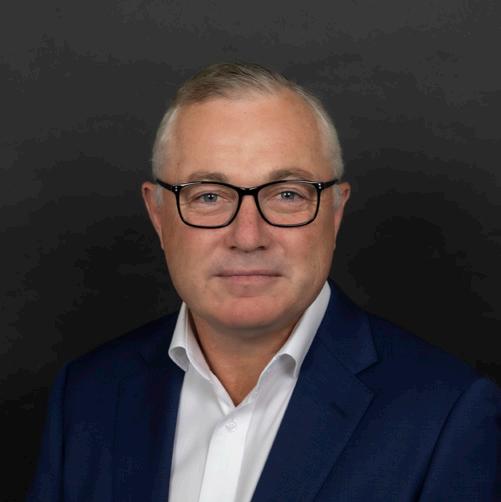
The annual reporting period from 1 July 2023-30 June 2024 has seen continuous improvements in services around the motu. Most recently, this has included the introduction of a new intensive service in Hamilton.
A major milestone over the last year has been ABI becoming part of Evolution Healthcare. Max Cavit (the founder of ABI) has left ABI in good hands cementing a strong and sustainable future for ABI.
My role as ABI Chief Executive has now expanded to include Evolution Healthcare’s Health and Wellbeing Group, leading ABI, Evolve Rehab, Proactive Rehab, Proactive Occupational Health and Evolution Care Pathways.
ABI has retained its name, specialty focus areas and talented clinical staff. Collaborating as part of the Health and Wellbeing division of Evolution Healthcare has further strengthened our voice and unwavering commitment to a pathways approach that values kiritaki and whānau. There are many synergies and I am positively looking forward to enhancing service delivery.
During the height of the COVID-19 pandemic, there was variation in the number of TBI rehabilitation admissions and causes of TBI. Over the last year ABI has seen a return to pre-COVID-19 demographic trends. We are also seeing emerging trends with a quicker recovery from post traumatic amnesia. With this, it has enabled shortened lengths of stay.
ABI continues to collect data and support a range of research projects aimed at improving TBI rehabilitation. ABI remains fortunate to have passionate, talented and dedicated kaimahi who have helped kiritaki achieve their potential with a number of amazing stories shared in this report.

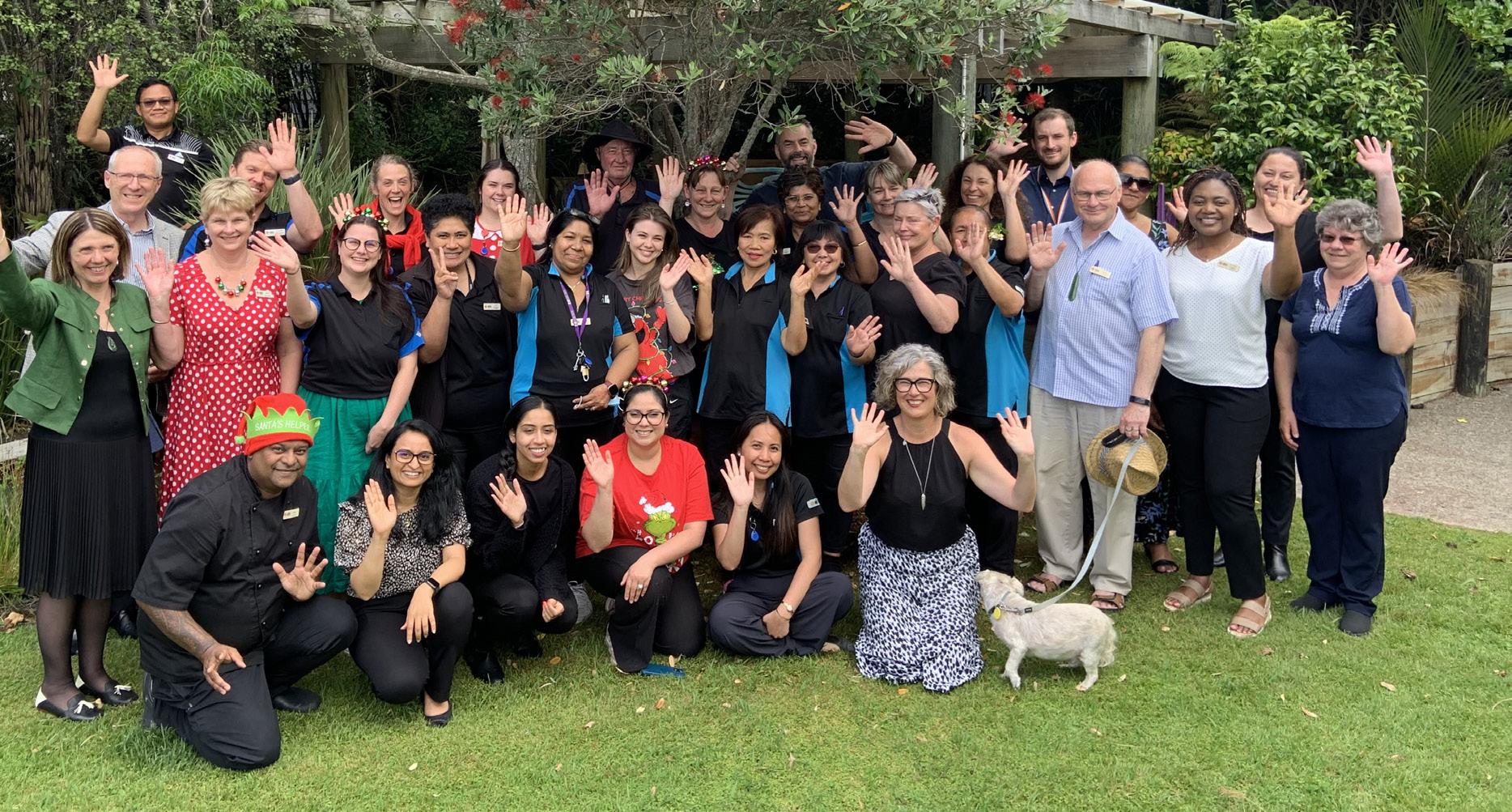

Ko te pae tawhiti, whāia kia tata, ko te pae tata, whakamaua kia tina. Pursue distant horizons so they may be close, and secure near horizons so that they are fastened.
Based on 266 episodes of care where two kiritaki were discharged twice in the same year.
Post-traumatic amnesia (PTA) duration refers to the time after a traumatic brain injury the person experiences disorientated, confused and struggles to hold onto new memory. PTA duration is a useful guide on the severity of the brain injury. Over an hour indicates mild, over 24 hours moderate, and over 7 days is classified as a severe TBI.
94% of kiritaki had a traumatic brain injury The remaining 6% were non-traumatic e.g. hypoxic and other injuries.
Average PTA duration of those that emerged
Length of PTA
The table below shows the referring hospital prior to their admission to ABI. Admissions from Te Whatu Ora (Health New Zealand) may not be that person’s area of domicile because they may have at one of New Zealand's five regional neuroscience centres. In addition to the admissions from the public hospitals, ABI has a small number of admissions from home or other residential services.
Disorders of consciousness can generally be categorised into coma, vegetative state (VS), or minimally conscious state (MCS). Kiritaki may transition through one or more of these states as consciousness is regained, or plateau in any one of these states.
Managing the assessment and treatment of kiritaki with disorders of consciousness, and the support of their whānau, is a specialised area of brain injury rehabilitation.
Since 2011, ABI has an Emerging Consciousness (EC) programme that recognises that those in VS or MCS, with an aim toward regaining consciousness and transitioning to participation in an intensive rehabilitation programme.
This programme recognises that those who have sustained a severe brain injury, and remain in a minimally conscious state, require specialised support, assessment and treatment to maximise positive outcomes.
The data shared for this year demonstrates the continued value of this programme, with 10 of the 13 kiritaki emerging from a minimally conscious state, and 4 kiritaki being discharged home. It is no surprise, given the severity of the injury, that ABI sees a longer length of stay when compared to those kiritaki arriving to ABI who are fully conscious as the recovery trajectory tends to be at a slower pace.
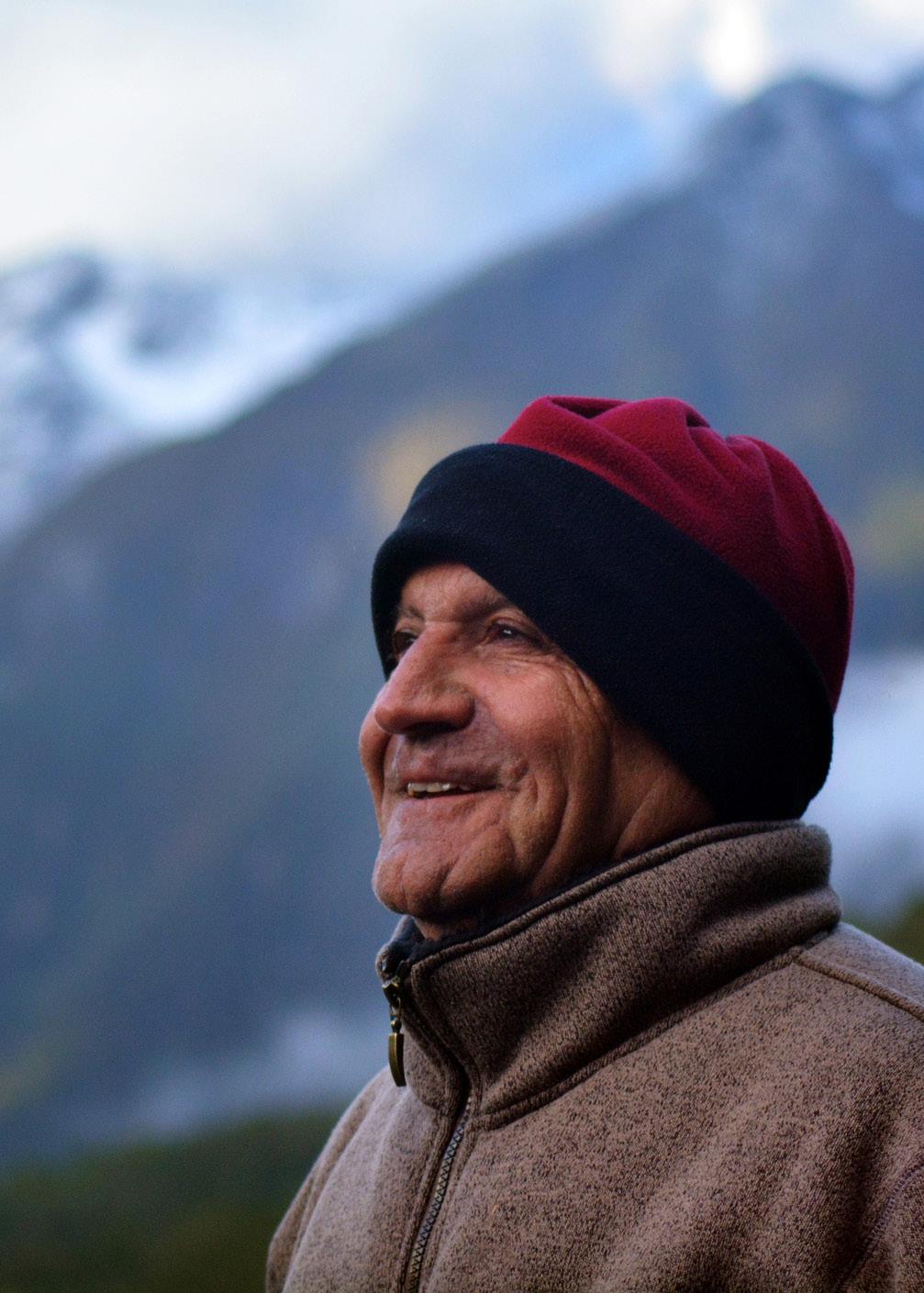
He aha te mea nui o te ao? He tangata! He tangata! He tangata!
What is the most important thing in the world? It is people! It is people! It is people!
ABI opened a new intensive service in Hamilton in May 2024. This has been in response to the consistently high number of kiritaki who reside in the Waikato Region requiring specialist TBI rehabilitation. Planning for the new service commenced in December 2023. Ahead of opening, ABI gained hospital level certification at its site in Glenview and successfully recruited a multidisciplinary team of health professionals. We are grateful that Dr Robin Sekerak, Wellington Medical Director has expanded her role to be the overseeing rehabilitation physician in Waikato.
Updated clinical pathways for moderate and severe TBI rehabilitation for the Waikato Region have been developed in partnership with Te Whatu Ora Waikato.
ABI’s General Manager Tony Young recently attended the World Congress for Neurorehabilitation in Vancouver. This was the 13th WCNR, attracting over 1,200 participants from over 50 countries. The conference covered a wide range of topics with some key themes including spasticity management, behavioural management, artificial intelligence (and the ethics relating to this), robotics, rehab intensity and cognitive rehab.
Tony presented a poster entitled ‘Emerging Consciousness Pathway in New Zealand: Reflecting on the past, present, and planning for the future’. This outlined how data from ABI contributed to the development of the EC pathway present in NZ. It also reflects on data from the past seven years, exploring differences in gender, age, mechanism of injury and ethnicity, when compared to the moderate to severe TBI’s. The outcomes of this programme were also shared, with 89% of EC admissions emerging from an EC state and 58% discharging home.
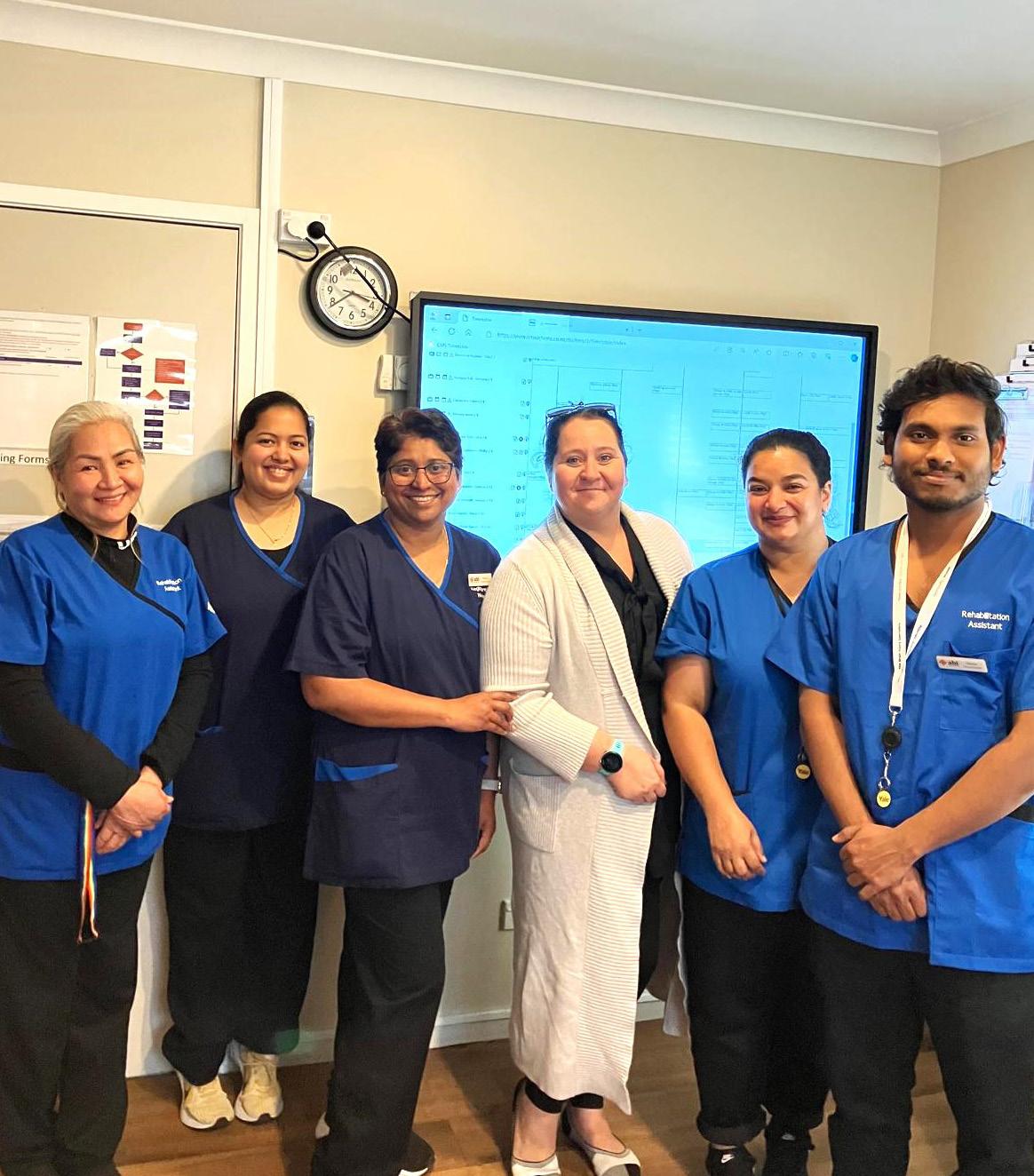

The annual nurses’ symposium was held in May 2023 where over 100 nurses from Whangārei to Dunedin attended online. It was a successful two days of networking and knowledge sharing, with many ABI nurses attending and presenting.
ABI nurses were awarded the following prizes at the symposium:
• Best Quality Project: Diana Kleijberg: MSAP – Medication Self Administration Programme
• Best topic of concern: Yash Sharma & Jake Watson – Challenges for Male Nurses Working in a Female Dominant Environment
• People’s choice: Day 1: Diana Kleijberg – Medication Self Administration Programme
• People’s choice: Day 2: Marie Tucay & Kiya Shortland – The NEtP Experience at ABI Rehabilitation
Congratulations to Elizabeth Issac and Flerida Garcia, who presented in the Round the Regions session.
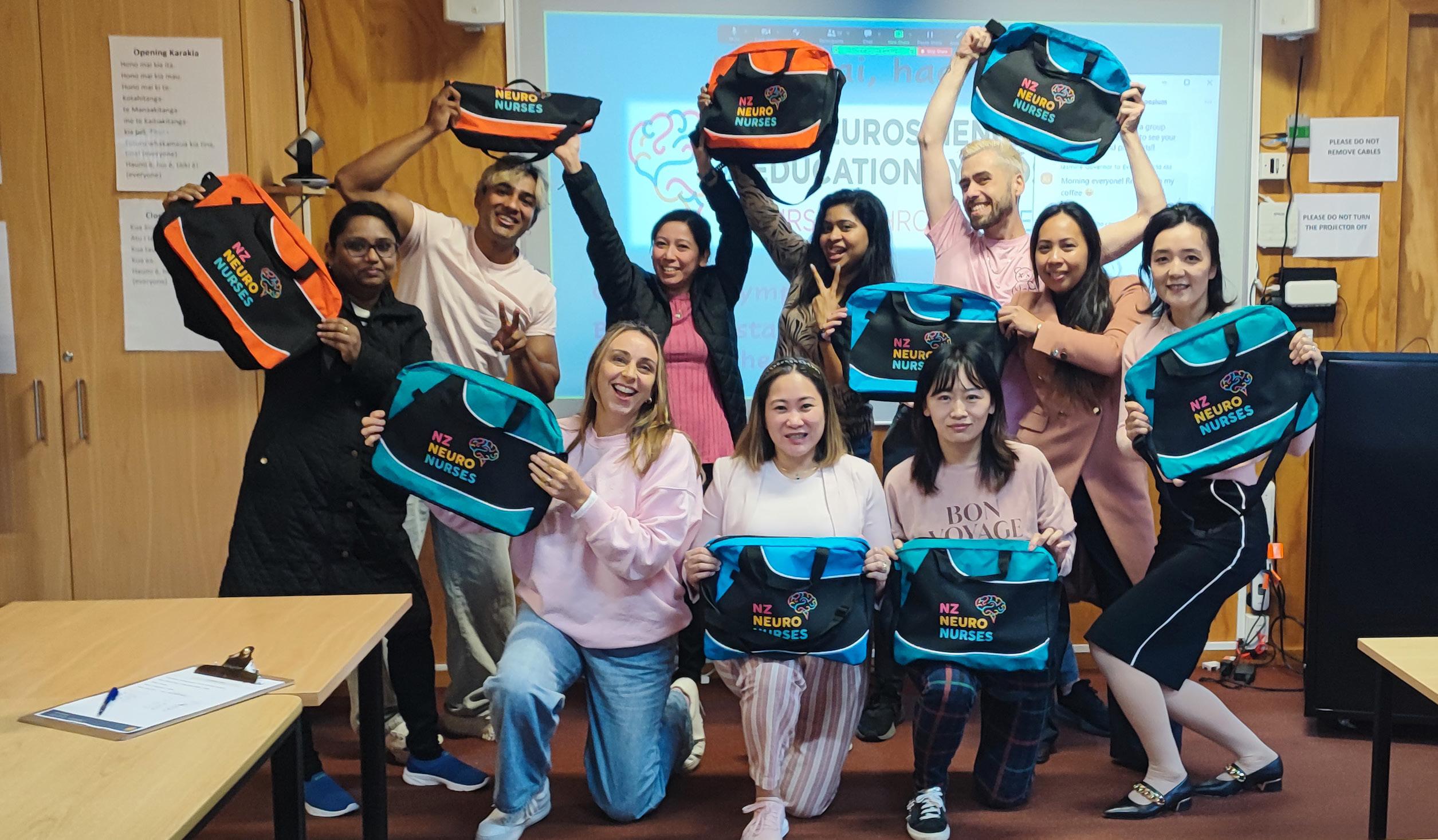
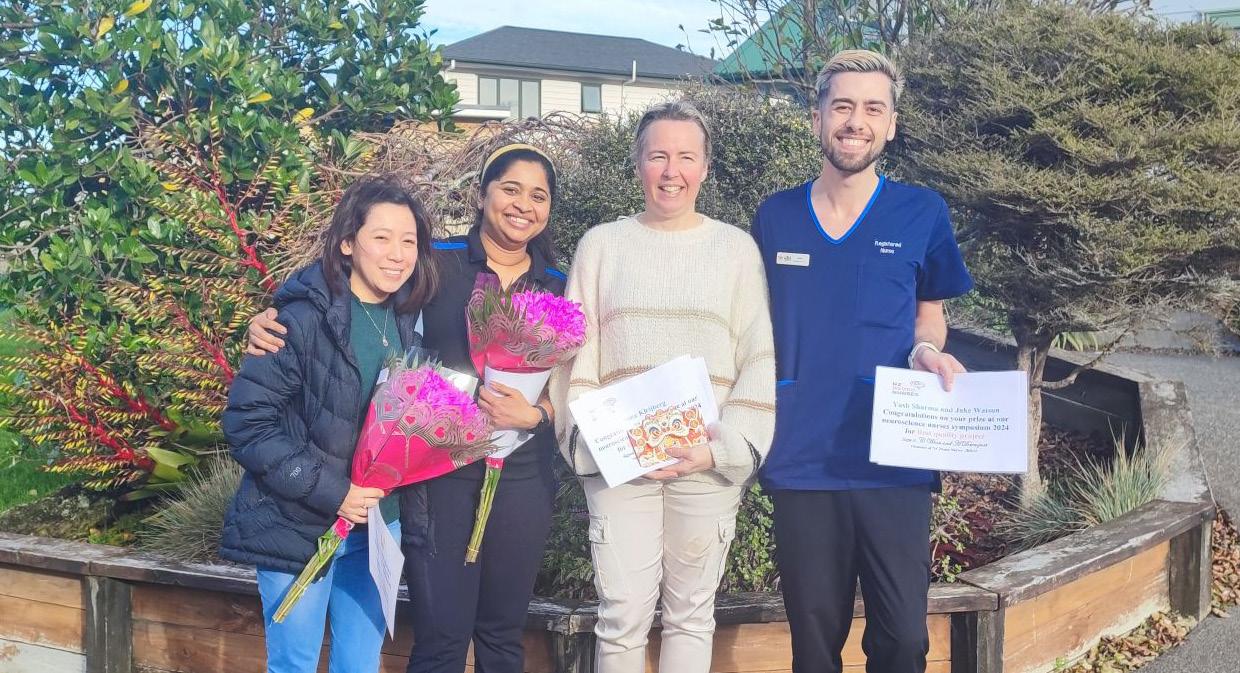
During 2023, ABI received funding from Ministry for Social Development to deliver support for those with Long COVID. All kiritaki who completed the programme experience a reduction in their symptoms, confidence in managing their symptoms and improvements in function (e.g. return to work, socialising, participating in life roles as partners/parents, return to exercising, no longer needing daytime naps, aware of boom and bust behaviour) as evidenced by changes in scores on assessment tools. It is noted that none had returned to their pre-COVID-19 level of wellness.
In addition, many kiritaki had significantly reduced hours at work, resigned or retired early due to the symptoms they were experiencing. Some were able to re-engage in the workforce and have more meaningful conversations with their employers about their recovery.
Feedback from kiritaki:
Some of our ABI kaimahi enjoying Symposium treats. (Top row) Rani Joseph, Yash Sharma, Flerida Garcia, Elizabeth Issac, Jake Watson, Marie Tucay, Jun Tao.
(Front row) Rowena Garland, Ellen Fusin, Selina Xing
Some of our fabulous ABI Presenters
- Flerida Garcia, Elizabeth Issac, Diana Kleijberg, and Jake Watson
“It was really validating to have someone with a medical/health background who understood and empathised with what you were experiencing. It was a weight off my shoulders for someone to acknowledge that what I was experiencing was very real and that I didn’t need to “harden up” and push through - that, in fact, doing so would be detrimental”.
“I enjoyed having the activity tracker to fill in so I could see how much I'd done over time. There were some big gains”.
“The structure of the programme was very helpful for me; I knew where to target my efforts.
“It has been so great to be accepted for what I am experiencing, I have felt dismissed by my GP and members of my family. This was the first time I felt genuinely accepted and did not need to convince anyone of what I was experiencing”.
“I learned how to adjust my expectations of myself and what I was doing during the week in order to remove demands and pressure”.
“I found everyone I dealt with at ABI really supportive and encouraging and was really surprised at how much progress I made at the end”.
“I learned how to pace myself and prioritise the important things and importantly say no. This has been a big change for me as I always say yes and try to push through. By saying no, I have been able manage things much better and remain fresh, I have also increased my exercise tolerance which I have been very happy about as I could not do anything at the start”.
ABI’s commitment to continuous improvement in each service is demonstrated in many ways, but most noticeably for kiritaki and whānau it’s through focus and commitment to facility upgrades in each intensive service. There have been many this year including:
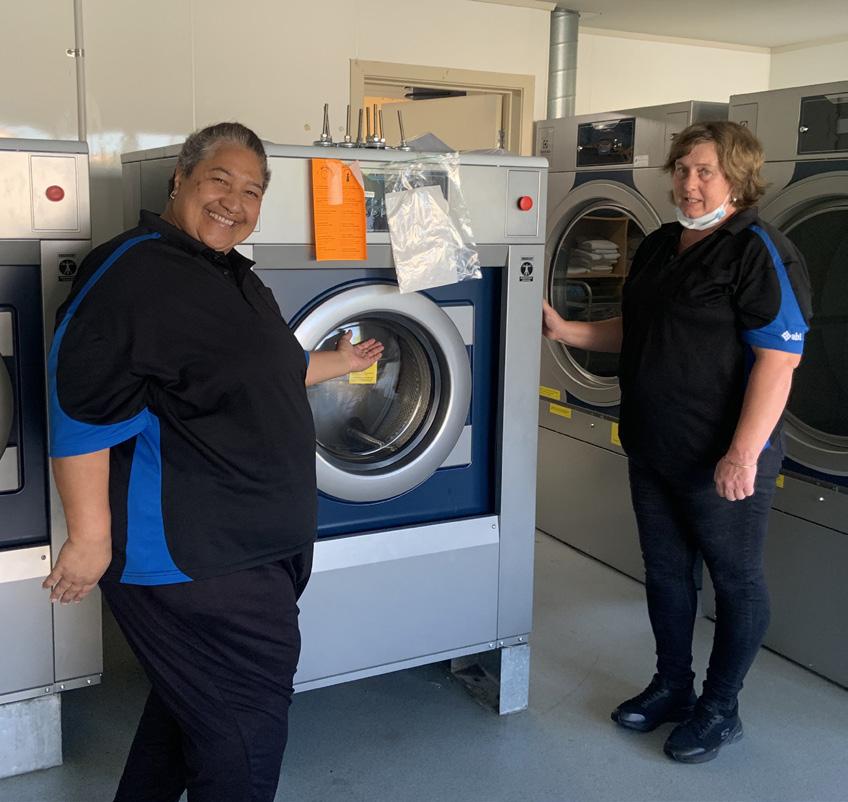
Auckland intensive has had a new commercial laundry installed which has become the busiest room in the service. Our rehab assistants and cleaners ensure all kiritaki have fresh laundry and clothes and the large machines have made the service more efficient.
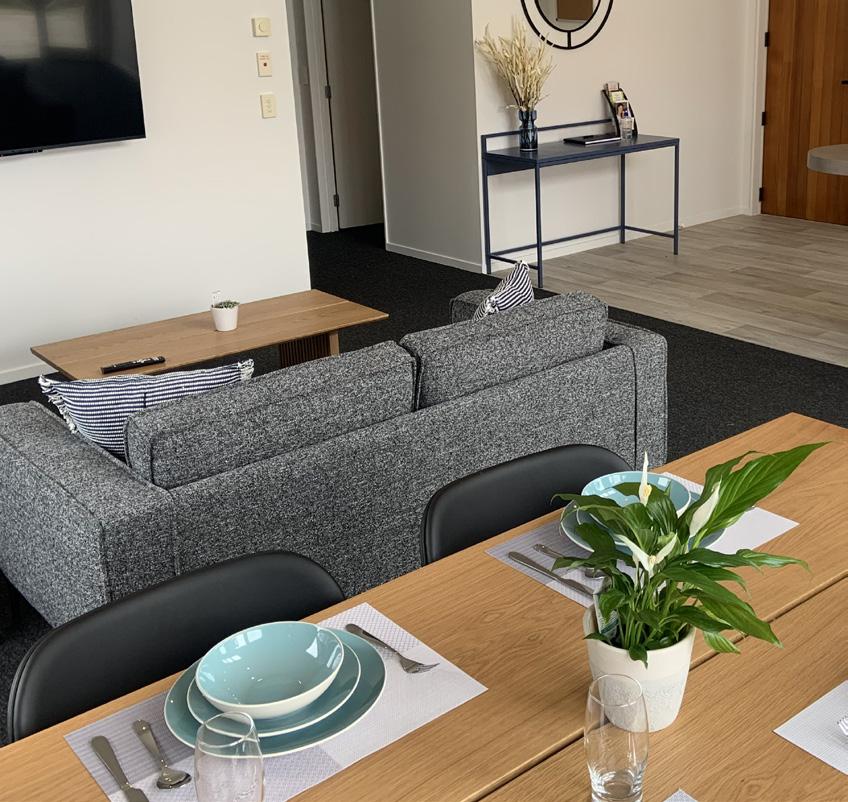
One of the intensive houses has received a full renovation providing more space for community reintegration rehabilitation activities.

removed
The removal of upstairs balconies in houses 3, 4, and 5 at Auckland intensive has been completed, resolving water damage issues. The next step involved finishing the external cladding and painting and removal of scaffolding.

House 4 underwent an extensive internal repaint and upgrade on the furniture.
ABI has created a new meeting space at Auckland intensive called the 'Manuka Room'. ABI clinicans use this space regularly for team and whānau meetings which is a warm and inviting place for hui.

ABI Auckland celebrated Chinese New Year and the year of the Dragon. Clinical Nurse Lead Jun annually and expertly organised this event with help from ABI kaimahi and kiritaki to produce over 500 dumplings for the festivities this year.
Members of the Waitakere Chinese Association came to perform in ABI’s gardens which was so beautiful and well received by kiritaki and kaimahi alike. Jun has helped ABI celebrate Chinese New Year for many years and it’s always an event in the calendar that everyone enjoys.
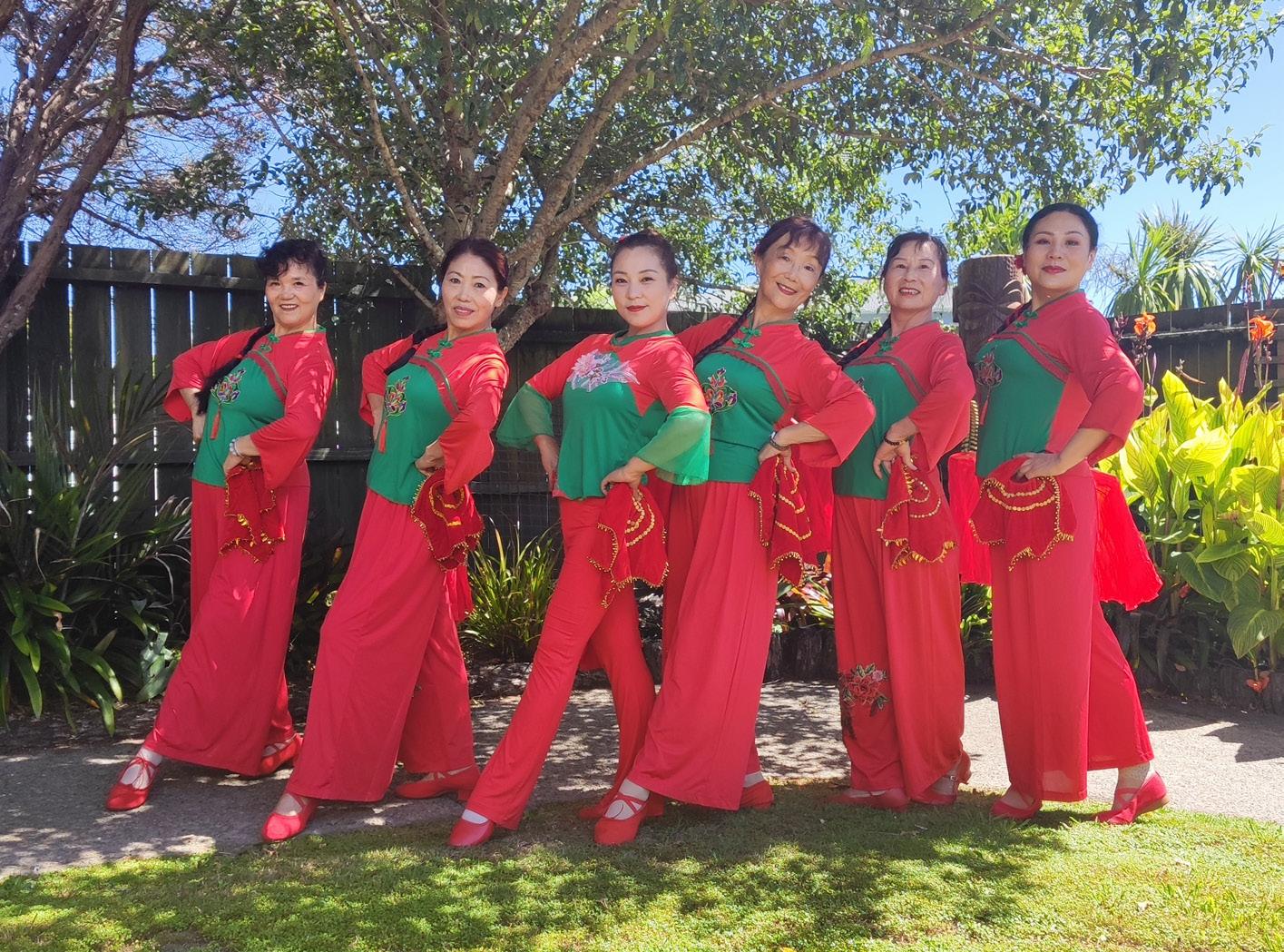
In March 2023, a large bunch of ABI kaimahi ran and walked in Auckland’s Round the Bays wearing new ABI t-shirts with the kuaka taking flight on their backs. There was rain but it didn’t dampen sprits as all kaimahi completed the course.
Several kaimahi had participants stop and ask them who ABI was, so it was a great opportunity to raise awareness of brain injury at the very beginning of Brain Injury Awareness Month. One kaimahi was stopped by someone to tell them that their uncle had been in ABI Wellington, had amazing rehabilitation and gave an emotional thank you to ABI.

November was an active month for kaimahi as as ABI challenged kaimahi to increasing their daily activity, including challenging themselves to do something new. One major initiative was ABI’s first Iron Māori team held in Napier.
Iron Māori celebrated its 15th anniversary on 4 November where seven kaimahi took part in the various triathlon events. The core kaupapa (intent) of Iron Māori is to promote health, wellbeing, and longevity from mokopuna (youth) through to kaumātua (elderly) with an objective of whanaungatanga (coming together).

It’s great to have ABI participating in kaupapa like these, supporting community events and building team culture. Mihi to ABI’s wahine toa team ‘Rehua’. Rehua reflects ABI’s mahi as he is a guardian of healing abilities, referred to as the expression of kindness, which encapsulates the approach to working at ABI.
Kaimahi really got inspired to move more last November where ABI had people trying dragon boating for the first time, Parkrun in their local community and running on the treadmill to get extra steps in at the end of the day. They were 12 teams participate in group stepping and seven of those exceeded their one million step goal. It was an excellent way to get moving and improve overall fitness. ABI delivered several prizes for the winning teams and feedback was very positive and requests for similar events in the future.
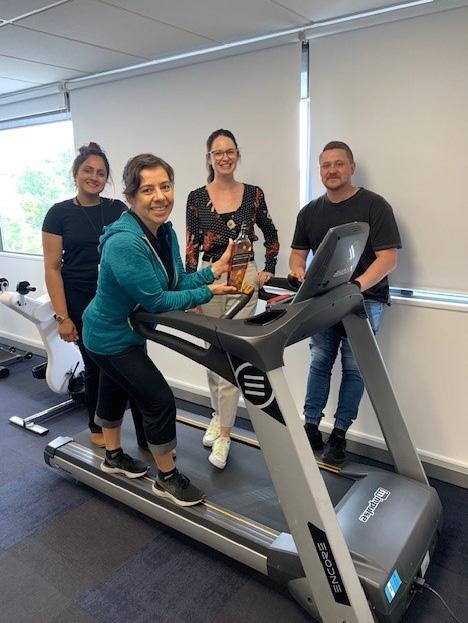
ABI has a wonderful team of nurses who support kiritaki and whānau each day. We acknowledge their service every year for International Nurses Day.
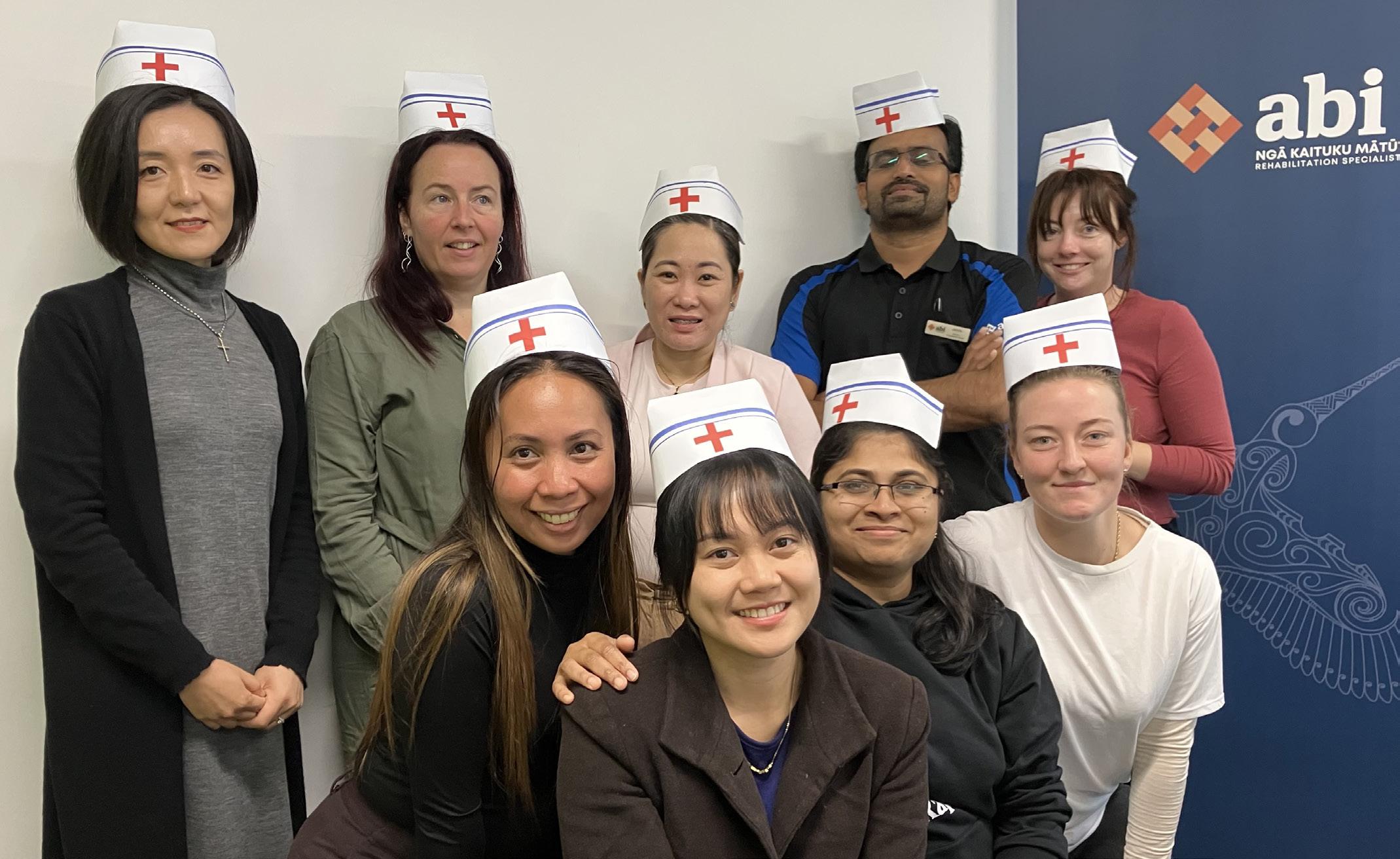
ABI regularly receives donations from kiritaki and whānau as a thank you for the service provided during their time at ABI. It is always gratefully received and incredibly touching. One such donation this year is a piece of art which that will be hung in the Auckland intensive service from one of ABI’s kiritaki, Mark.
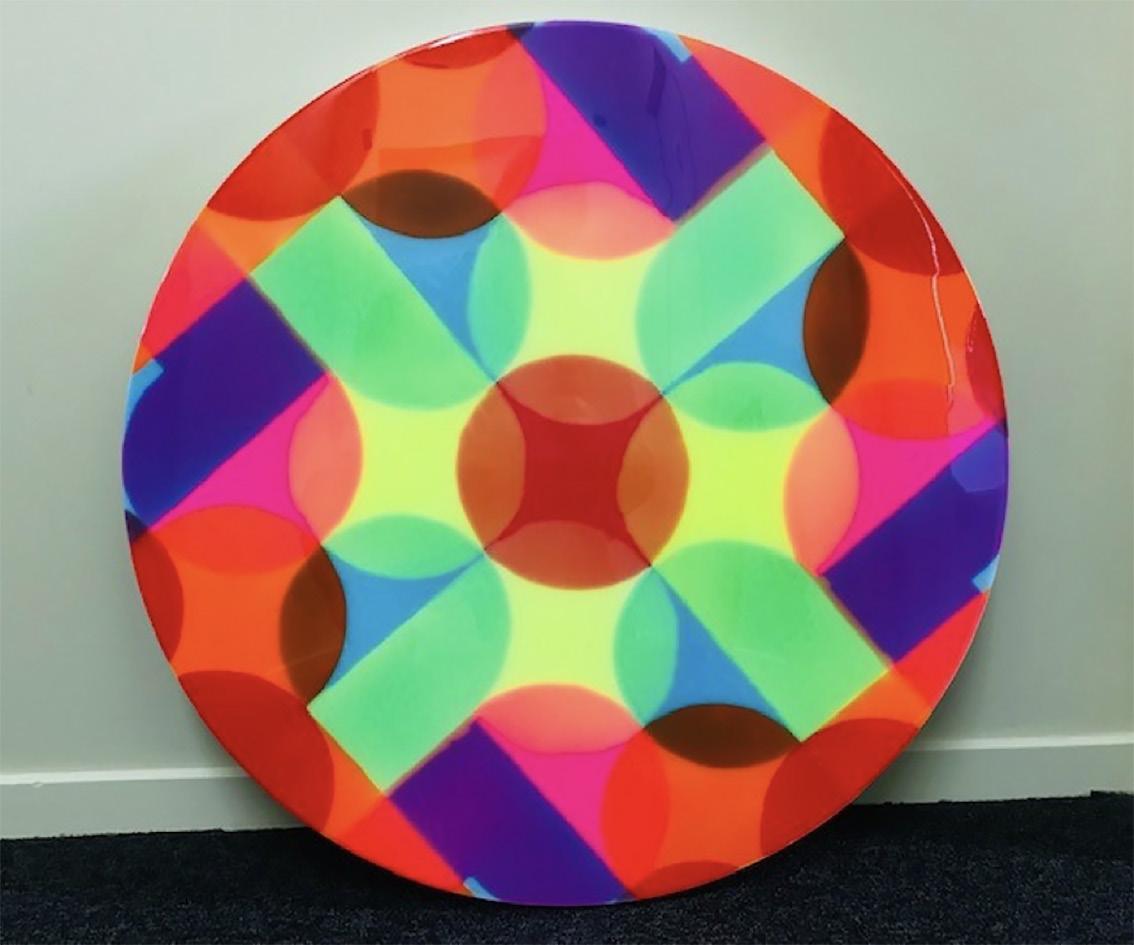
Mark was admitted to ABI in May 2024 following a motor vehicle accident where he sustained a traumatic brain injury. He remained at ABI for 49 days where he received a period of inpatient rehabilitation before being discharged back to his home in Napier earlier in July. He bought this piece to donate to the unit as a gesture of gratitude and to bring some joy through colour to those that connect to it.
Te Hekenga-ā-ora (ABI's Māori Development Plan) was launched in July 2022 for the period 2022-2025.With the application of Te Hekenga's waka hourua model (below)
ABI has made significant traction to enhancing a culturally safe environment for kiritaki and whānau Māori. Below is an update on how strategic priorities have been addressed in the past year.

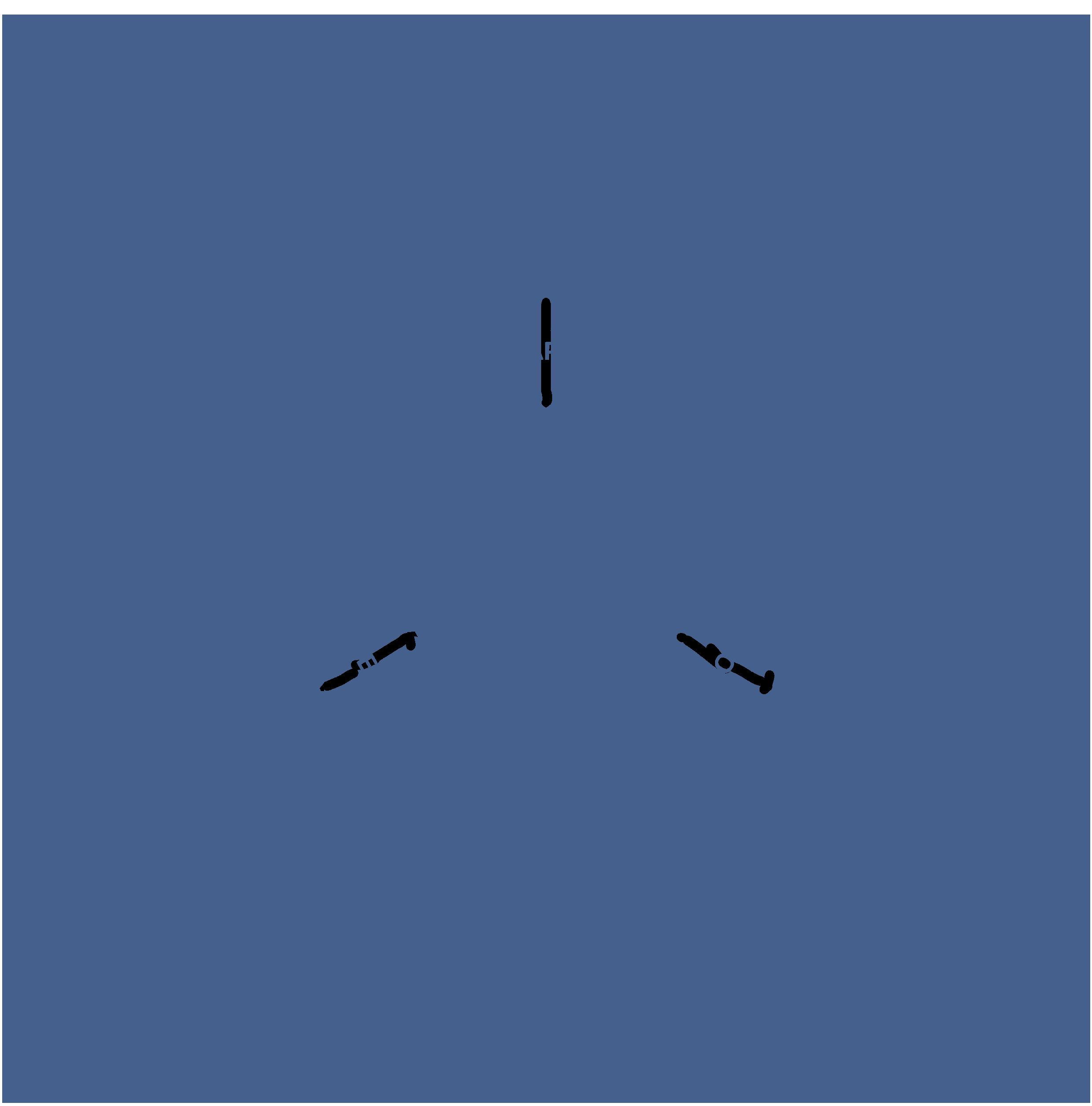
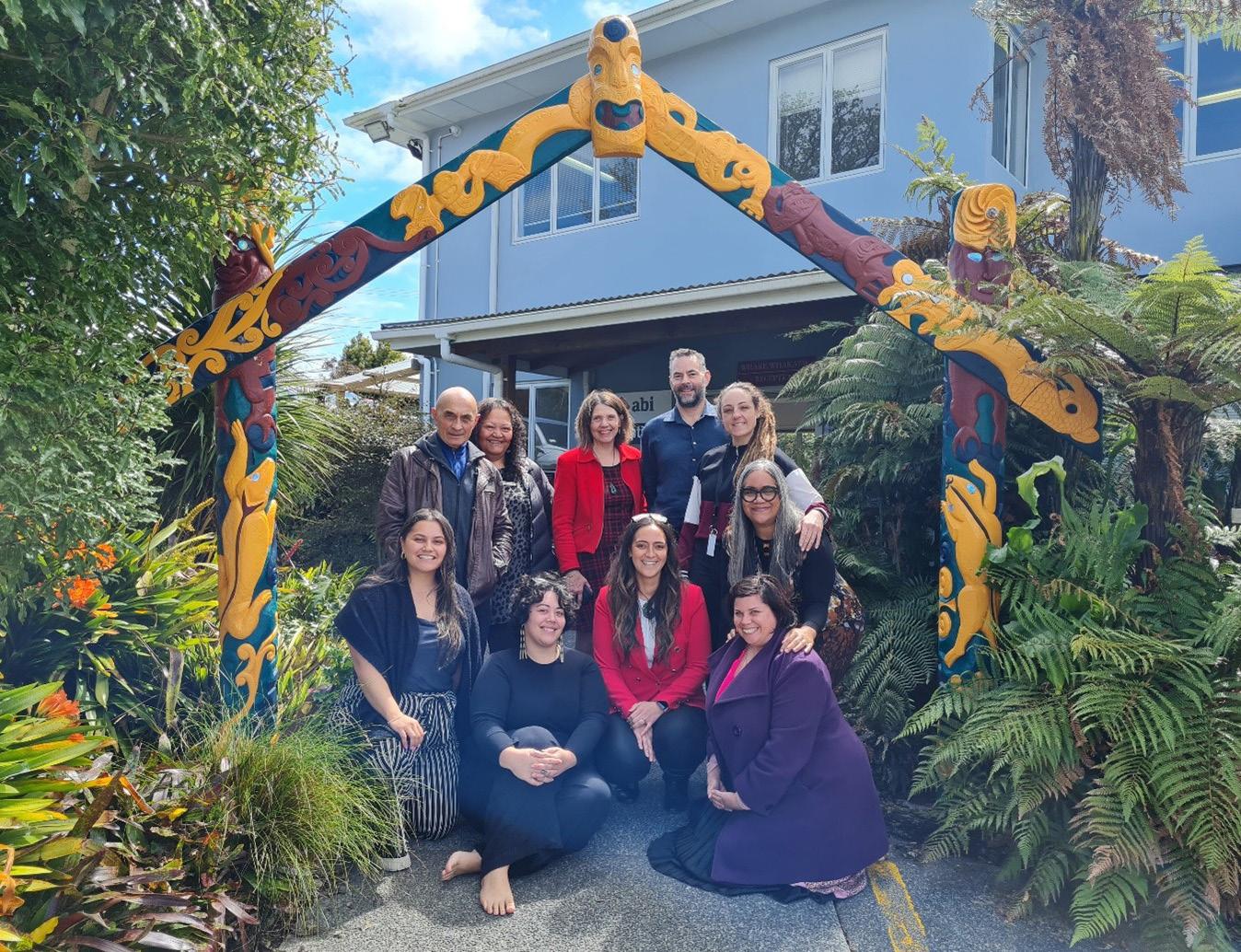
In last year’s annual report, we announced the formation of the Mātauranga Māori Rōpū. The rōpū brings together members with key expertise in mātauranga Māori to provide guidance on the implementation of Te Hekenga-ā-ora, advice to Clinical Governance and recommendations on operational projects. The Mātauranga Māori Rōpū has a key role in providing advice in a manner that considers all iwi, lived experience and stakeholders in Aotearoa. ABI's Mātauranga Māori Rōpū is made up of seven members actively engaged in the community or group/s they represent chaired by Faith Curtis-Flavell.
ABI’s Mauri Ora Training was a great success over 2023 and the first half of 2024 with more than 50% of staff completing the training which was delivered both in-person for Auckland rehabilitation assistants and nurses, and online for all other staff to access. This year four in-person trainings have been confirmed for Wellington Intensive rehab assistants and nurses and another eight online intakes, half of which have been completed.
The training has resulted in great changes with kaimahi indicating an increased awareness of Te Hekenga and its implementation but more importantly, how to better care for kiritaki and whānau Māori.
Whakatau is an informal welcoming ceremony (as opposed to a powhiri) that typically has elements of karakia (prayer), waiata (songs), hariru (greeting process involving hongi) and concluded with a kaitahi (food gathering or refreshments). Whakatau are constructed in different ways depending on the event and locational tikanga/kawa (protocols). At ABI we have crafted a whakatau process under the guidance of the Mātauranga Māori Rōpū for kiritaki and whānau entering ABI Intensive Services. With the implementation of this process, ABI aims to make kiritaki and whānau feel welcome and safe navigating their brain injury rehabilitation journey alongside ABI.
During 2023, ABI undertook a review of satisfaction surveys to ensure pātai were in line with ABI’s Ngā Mātāpono strategic principles and adequately capturing the whānau experience. The results produced two versions, one for kiritaki and one for whānau with a change in survey questions, layout and delivery – diversifying how information is gathered from kiritaki and whānau which includes paper form, online form and in person over a kōrero with kaimahi.
Te Kūaha was developed in 2023 as a resource to support staff understanding of Te Ao Māori, the Māori world. As ABI continues to embed a culturally safe and competent approach to their service, we understood the need to ensure we best support staff in understanding the importance of this, with guidance to usher their journey into (what is often the case) a new way of thinking. Te Kūaha means ‘the doorway’ reflecting the sentiment of this piece being a doorway to understanding te ao Māori.
Waiho i te toipoto kaua i te toiroa. Let us keep close together, not far apart.
Service Development Manager, Michelle Wilkinson is a member of the BIST Development Group. This group is made of up academic researchers from AUT, ACC, GP’s, Physiotherapy, Te Whatu Ora and Concussion Services to further refine the BIST tool and support its implementation within Primary Care and Hospitals within Aotearoa New Zealand and Australia.
This year the group spent considerable time looking at the weighting of the questions to score the tool to support appropriate decision making, TBI education for GP’s and referrals onwards. The new weightings have been in use as a trial since April 2024 and are about to be launched nationally. The team are also looking at developing a BIST app to become a central repository of BISTs and to ensure the current versions are being used and can be controlled by the authors.
ABI is using the BIST within the Concussion Service, ideally kiritaki entering the service have already had a BIST completed by a GP or hospital clinician. Until recently this has not been the case, so the ABI BIST has been the first one completed. The ABI team have found some useful information regarding prediction of outcomes based on the initial BIST score which has been shared with the development group.
As the BIST is being more widely used, more kiritaki being referred to ABI are expected to have an initial BIST completed, the use of subsequent scoring has been useful for some kiritaki to show change in their presentation or help refine their rehabilitation plan to focus on specific problematic areas.
It is a real privilege for ABI to have a continuing role in this development group, proudly representing community Concussion Services, TBI rehabilitation and BIST use in the community.
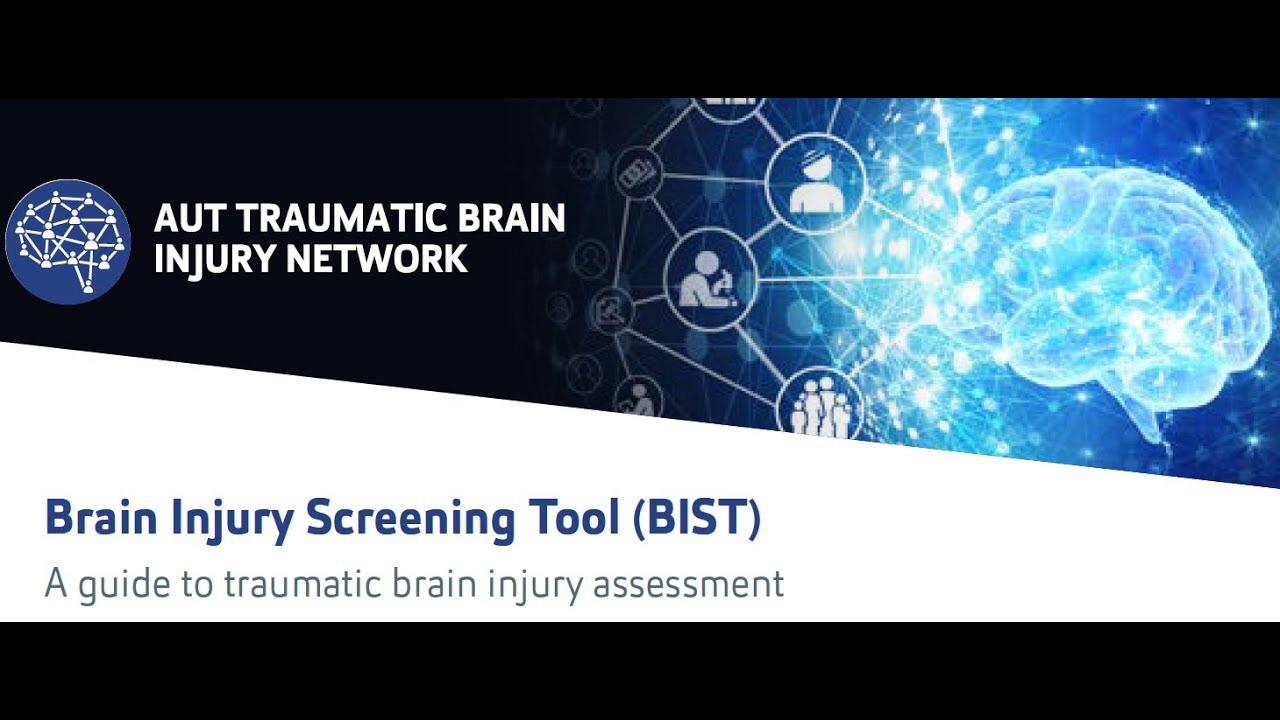
During 2022 and 2023 ABI partnered with ACC and Habit Health to deliver an ACC designed Proof of Concept (POC) Concussion Service. The last kiritaki exited this POC in early 2024 and ABI has contributed to the ACC funded evaluation of the service.
ABI supported 1339 kiritaki in this service and was supportive of many aspects of the POC, especially the flexibility within the service, which has been retained going back to the business as usual Concussion Service.
This has included:
• Use of the BIST tool at beginning and end of service to show change and reduction in symptoms
• Goal setting using the Patient-Specific Functional Scale which strongly facilitates using kiritaki voice and is easy for kiritaki to score
• Use of the STARt-C tool to screen for psychological risk factors and determine psychology support within Concussion Service
• Neuropsychology Screen utilised in some situations as a clinical psychology screen to assess background contributing factors, mood, anxiety, coping, resilience following the outcome of the START-C tool
• Closely integrating Stay at Work programme to be similar to the POC Recovery at Work
• Reducing focus on clinician hours in the service to think specifically about what the kiritaki needs and can ABI achieve an outcome via the Concussion Service within 6 months (if not transfer to TI Te Ata Pō or Tamariki and Rangitahi at assessment as their needs would be too high for Concussion Service)
Other innovations that have occurred over the last year have included the development of Concussion Assessment tool applying Te Whare Tapa Wha co designed by ABI’s Māori Development team and the Concussion IDT. ABI is delivering a regular Concussion Clinic in Auckland Prison and South Auckland Correctional Facility.
ABI’s psychology team have received training in delivering ACTion mTBI programme to deliver Acceptance and Commitment Therapy as a psychological intervention to implement within the Concussion Service for those where recovery could be impacted by psychological risk factors.
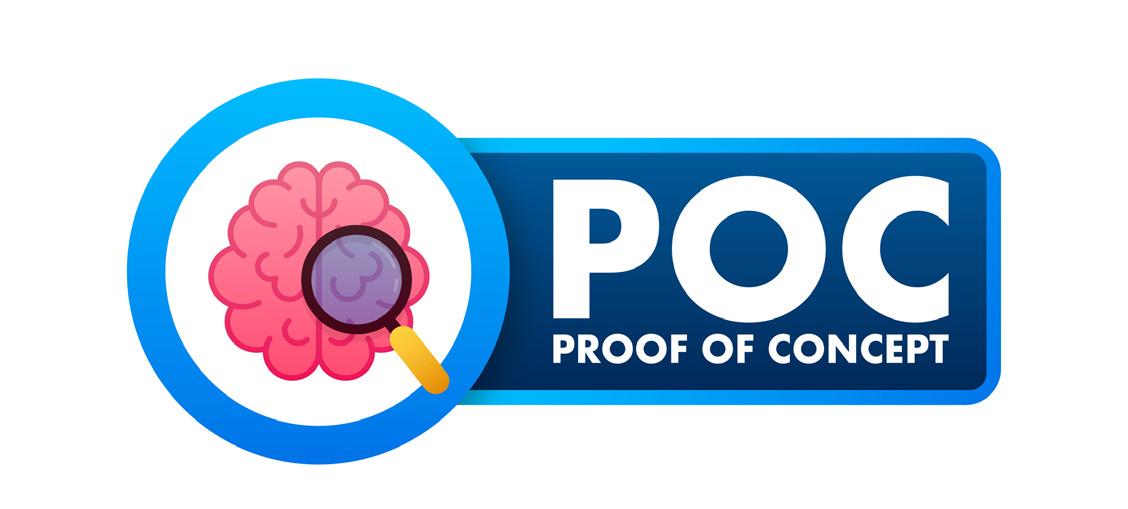
ABI is one of over 9,000 health organisations with CARF accreditation, worldwide, but the only accredited rehabilitation organisation in Australasia. CARF accreditation helps to ensure that ABI remains person-centred in its mission, consultative in its quality improvements, and field-driven in integrating evidence-based practice into service delivery. The mission of CARF is “To promote the quality, value, and optimal outcomes of services through a consultative accreditation process and continuous improvement services that centre on enhancing the lives of persons served.” This mission shares multiple synergies with ABI’s mission and values.
ABI has held CARF accreditation since 2012 and is preparing for its next survey to maintain another three year accreditation status in November of this year. During this survey, ABI will be visited by six or seven surveyors who practice in similar brain injury specialty services from around the world and will provide peer-review through observation, interviews with clinical teams, management, persons-served, and stakeholders, and documentation. This will lead to a summary of strengths, recommendations, and consultations that ABI will take forward to create a continuous quality improvement cycle.
In addition to accreditation, ABI has multiple other links to CARF. Three ABI kaimahi are CARF surveyors, which provides the opportunity to visit rehabilitation services across the world, provide peer-review surveys, learn from others, and share best practice.
Service Development Manager, Michelle Wilkinson was invited to be a member of a CARF International Special Advisory Committee to design and develop Concussion Standards for CARF. ABI felt very privileged to be part of this International Committee and support the publication of the Standards that went live 1 January 2024.
The Managing Director of Medical Rehabilitation and Ageing Services, Terrence (Terry) Carolan visited ABI in June to see for himself the services we deliver to kiritaki within the intensive, residential and community services. Terry also provided ABI kaimahi with a presentation about the mission of CARF and the benefits of accreditation. While he was here, he discussed how ABI may be able to contribute in the future to new emerging consciousness standards.
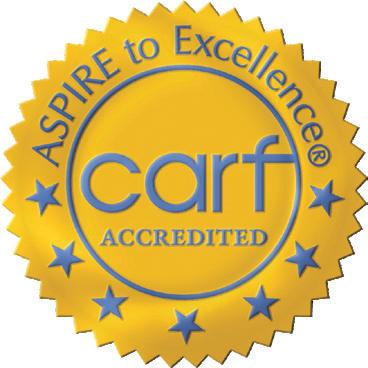

ABI has partnered with AUT and Ara Poutama Aotearoa (Department of Corrections) to develop easy, accessible and equitable pathway for those within care of Ara Poutama to access Concussion Services or other brain injury services.
It’s already showing positive change in inreach rehab service between several Auckland prisons: Pareremoro, South Auckland Men’s Correctional Facility, Mt Eden, and as required at other prisons around the North Island including Ngawha, Manawatu, Arohata and Remutaka Prisons.
There’s a small team dedicated to prison inmate brain injury rehabilitation that may have occurred in prison, or prior to their admission. One such kiritaki is Frank who has had an interesting few years, in and out of the justice system.
Frank was first seen as an ABI kiritaki when he was in prison for fraud related charges. A NZ European in his mid-40s, he had been assaulted whilst on remand in prison and sustained a severe brain injury. As his injuries were severe, he was admitted to ABI’s intensive service where he over time learned to walk again. When he was stable enough, he returned to prison and was then granted bail to his parents’ home, primarily as a result of his injuries.
ABI then began supporting Frank in the community and he was initially hesitant to participate in early rehab, blaming many things on his brain injury and wasn’t taking advice on board. ABI’s skilled team were able to engage with Frank on his level and recognise that his brain injury didn’t define him and set realistic goals that would get him quickly back on his feet. Frank began engaging with ABI’s support and achieving quickly but with all best laid plans, they never go as expected.
Frank was in the company of acquaintances who were committing a crime and as a result, he was returned to prison again. The ABI team continued his support in prison, and he was again granted electronic bail and returned home after a short period.
This time, Frank began rebuilding his life with ABI’s support and he found full time work which was both rewarding and returned his sense of purpose.

ABI connected Frank with community services that he required as part of his rehabilitation, including Narcotics Anonymous and Community Alcohol and Drugs Service (CADS). After four years of support from ABI, Frank was recently discharged after meeting all his rehabilitation goals, something he didn’t think was achievable a few years ago.
His mother wrote ABI a letter of thanks after Frank was discharged:
For me, Lindsey (ABI kaimahi) was perfect at this time for our son. She had him talking freely, getting him to process what she was saying or suggesting. At times she could see that he often needed reinforcement to learn to process speech, ideas etc. If he didn’t understand she guided him in such a way he could understand.
She took no rubbish from him; she said it as it was – kindly of course – which is the way to be. She handled him perfectly and that comes with experience and years of dedication by a person as Lindsey who clearly, she loves her work. I think it would be fair to say that Frank is one of a success story for Lindsey.
Lindsey Farrelly has been an occupational therapist for 12 years and reflects that a no-nonsense approach works better for working with inmates. “No matter what they’ve done, they still deserve rehabilitation”.
With the flexibility ABI now has to support kiritaki in and out of prison, this allows for continual support, and increases the likelihood of rehab goals being met quickly and more efficiently. We look forward to more stories like Frank’s in years to come.
In addition to the inreach partnership, ABI also provided education and resources to Ara Poutama Health Centre and Custodial Staff on brain injury and how to ensure an ACC claim was lodged. Michelle Wilkinson and Christine Howard-Brown contributed to this paper that was accepted for publication within the prestigious Brain Impairment Journal late 2023.

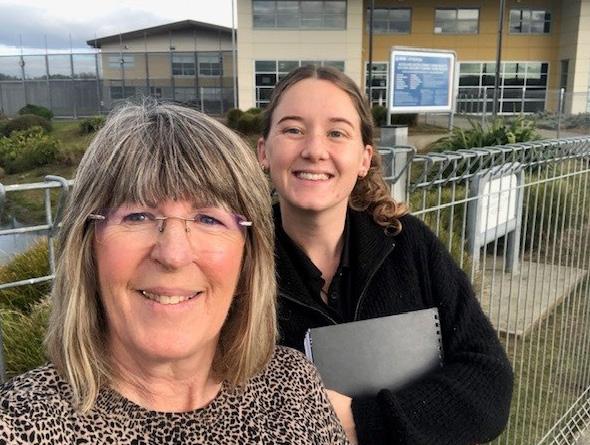
ABI was successful in gaining funding from MSD to deliver a stroke rehabilitation programme for young Māori (under 65s). The programme wove Mātauranga Māori concepts with western science neurorehabilitation and was delivered by a Māori rehabilitation clinician, a Rongoā practitioner and Kaiārahi Kaupapa Māori within a group setting in Auckland, Wellington and Whangarei. Thirty one kiritaki participated in the rehab programme.
The programme was named ‘He Ūpoko Tapu’ (our head is sacred) and consisted of four hours per week programme delivered over six weeks and is guided by the principles of Te Whare Tapa Wha. The programme was intentionally whānau centred providing a safe space for kiritaki and whānau as caregivers to also participate, learn about stroke, gain peer support from other whānau members, connect with indigenous healing approaches, dream, share kai and set goals for their whānau member.
A Māori health practitioner with significant expertise in both neurorehabilitation and Mātauranga Māori engaged with a range of stakeholders to develop He Ūpoko Tapu. From a Māori perspective this included an external Mātauranga Māori advisory group (which included at least one Māori with a lived experience of stroke), local kaumatua, iwi and Māori academics. From a western science perspective this included a range of health practitioners who have expertise in the delivery of stroke rehabilitation. In accordance with whakawhanaungatanga and evidence based practices, the development of the programme took a significant amount of time and resource to develop.
As ABI already provides a community group stroke rehabilitation programme, it was easy to recruit whānau from this group to transfer to He Ūpoko Tapu. ABI also connected with local Te Whatu Ora, GP’s including hauora health centres, local kaumatua and iwi and the NZ Stroke Foundation of the service to gain referrals.

In October 2023, ABI migrated its legacy SharePoint to a new cutting-edge SharePoint platform to improve operational efficiency and collaboration capabilities. The new platform called Te Puna, provides enriched features like a centralised Smart Document Management System (SmartDMS), improved staff collaboration on news and events, real time collaboration and consistency on documents and much more.
ABI’s commitment to privacy is further expanded as we continually enhance security of business and clinical data by implementing Multi Factor Authentication for mobile devices. The roll out of both these initiatives have gone smoothly and we look forward to seeing future positive outcomes from these improvements.
The source that sustains our mahi
Whaiwhia te kete mātauranga. Fill the basket of knowledge.
The workforce development group is comprised of a range of ABI senior leadership members that includes our Directors of Nursing and Allied Health, National Psychology Advisor, People and Culture Manager, and a number of managers representing the various ABI services.
The purpose of this group centres around improving the experience of our kaimahi, this includes developing and implementing key initiatives in the areas of staff wellbeing, training and career development, diversity and inclusion, recruitment, and cultural safety.
The workforce development group has been focused on a number of priorities over the last year that have ranged from reviewing mandatory orientation training to staff wellbeing initiatives that support our diverse kaimahi.
We have taken a “career journey” view to consider our kaimahi needs at various stages of their development through ABI, from initial orientation through to preparing for leadership positions.
Some significant workstreams over the last 12 months include:
• A revision and update of all mandatory orientation training – both e-learning and in-person learning
• The trial of additional sources of on-line learning to help support the one-on-one learning that takes place during the initial 3-6 months of orientation into the ABI intensive and residential services
• The introduction of competencies and clinical fundamentals for various disciplines across all ABI services to help support their brain injury specific clinical learning and ensure they have a solid foundation of knowledge and skill on which to grow their expertise
• An exploration of suitable leadership development opportunities for those kaimahi who are preparing for, or are already recruited into, leadership positions
• Developing organisational and people metrics so managers can more easily track the needs of their teams
Now being part of the wider Evolution Health Group, the workforce development group has the opportunity to partner with others who are working towards similar priorities in other areas of the organisation and will be exploring options for expanding it’s membership to ensure there is consistency of development opportunities and wellbeing initiatives across all areas of the business.
ABI’s preadmission team have had an increase in kaimahi over the past year. ABI welcomed Claire Minton who joined the Brain Injury Nurse Specialist team in February 2024 and is based in the Manawatu.
Claire has a background in nursing education, having worked many years for Massey University. She was a Senior Lecturer and Director of the Bachelor of Nursing programme. Her clinical experience before this was in ICU. Claire completed her PhD in 2017 with kiritaki, whānau and healthcare professional’s experiences of a prolonged critical illness. She is highly committed to high clinical standards, has a passion for teaching, and improving outcomes for kiritaki and whānau.
In her role as Brain Injury Nurse Specialist, Claire assesses potential kiritaki in the hospital, provides education and support, and assists with the transition process from hospital to ABI.
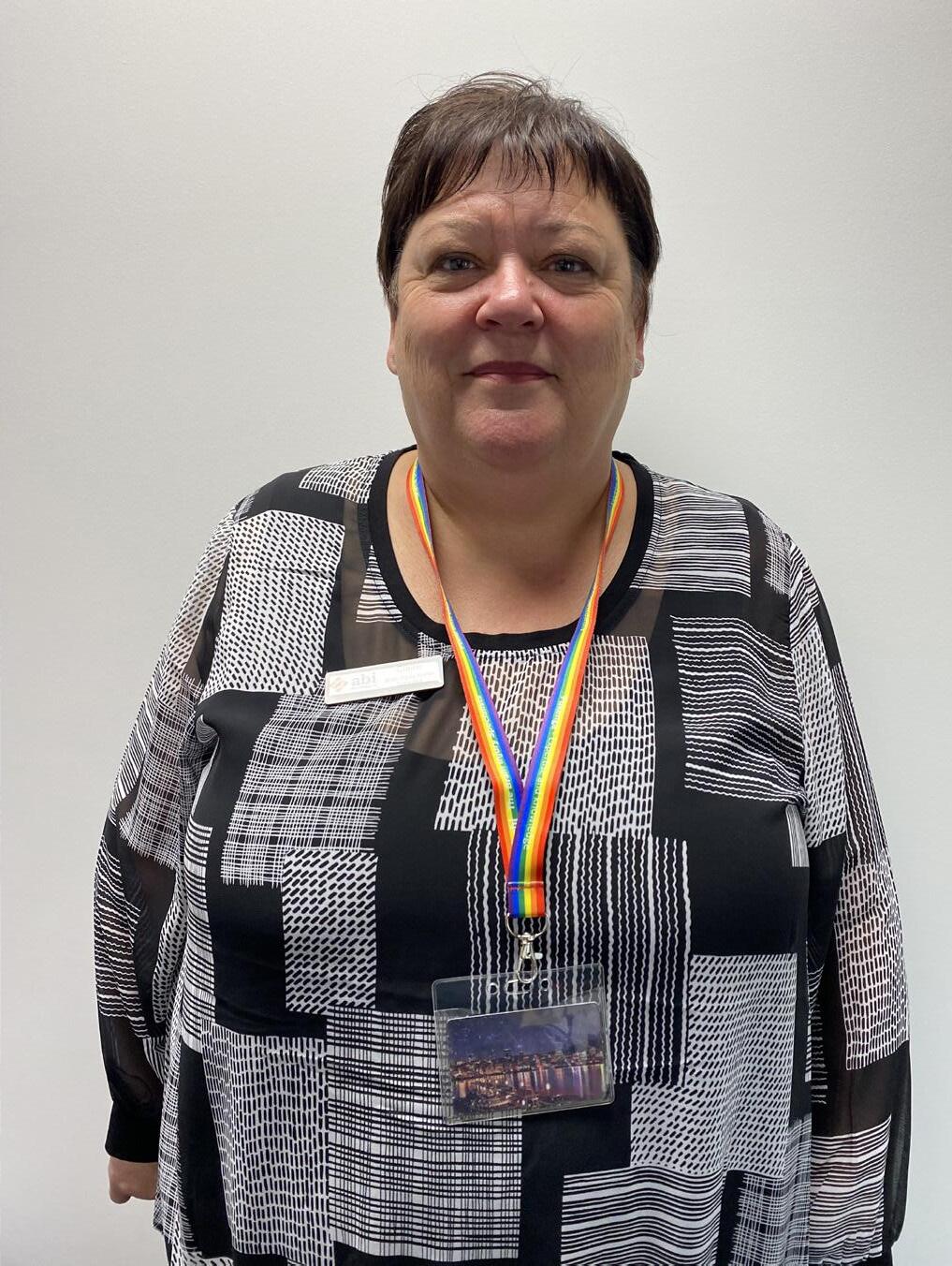

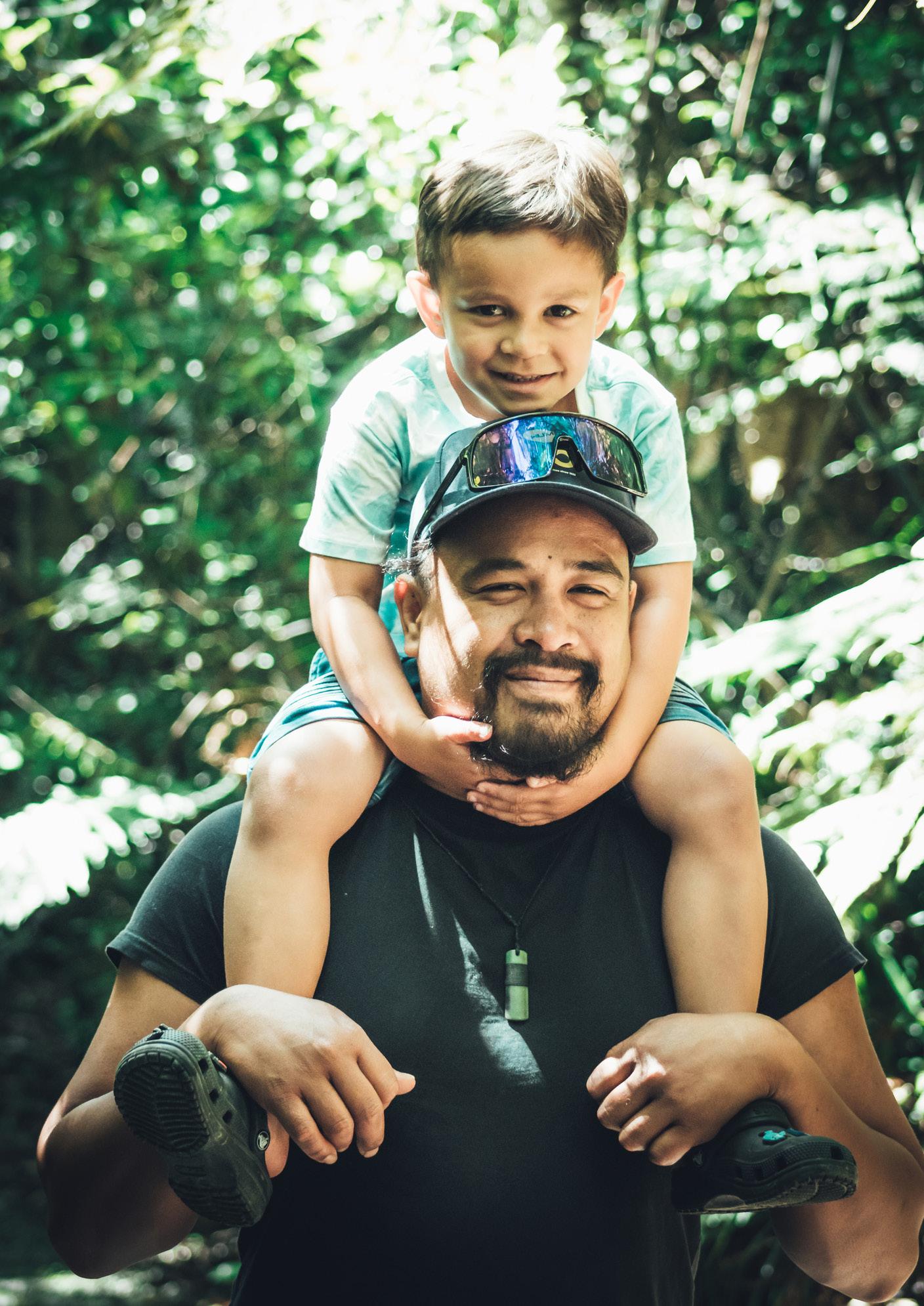
Tē tōia, tē haumatia.
Nothing can be achieved without a plan, workforce and a way of doing things.
ABI actively seeks feedback from stakeholders and below is a wrap up of that feedback. This year we are pleased to see an increase in kiritaki and whānau data from 90% to 100%, based on satisfied or very satisfied selections.
Here is some additional feedback which we use to improve our service on an ongoing basis:
We asked the question: With regards to your overall satisfaction, how satisfied were you with the service ABI provided?
Satisfied 27%
Comments included:
• Everyone and the whole service was awesome and you deserve a pay rise and holiday!
• Highly recommend!
• In general, a good service, the doctor established a relationship and were receptive to feedback, friendly and interactive – most professional people
• Was able to work on everything and be fit enough to leave
• Quite impressed!
• Very good. I thought you were very caring staff
• I definitely came out better than I went in! That was thanks to some tools I learnt.
We asked the question:
With regards to your overall satisfaction, how satisfied were you with the service ABI provided?
Campbell will never forget his 19th birthday, although ironically, it’s one he’s had to rely on others to help him remember.
During a game of hockey, he was hit on the head with a ball which fractured his skull, optical bone and jaw. He also sustained an epidural haematoma, requiring lifesaving brain surgery and his family was advised he had sustained a traumatic brain injury.
After leaving Waikato Hospital, he spent a month at Auckland intensive where he worked with a physiotherapist, a speech and language therapist, an occupational therapist, a neuropsychologist and a case manager who were all dedicated to assisting Campbell's recovery.
Less than a year since his injury, Campbell is now back at university and achieving the goals he set soon after the injury, including ambitious sporting challenges. He recently won the Motu Challenge multisport race and came third overall in the iconic Coast to Coast race in February 2024.
Comments included:
• Always very friendly and I managed to do some gardening when he was there
• It was incredible. After leaving Middlemore it was so nice to be able to leave him at nighttime and feel confident of getting the care he needed.
• I am so glad my daughter had the best care all round at ABI rehabilitation, to all the staff that took care of our girl, thank you very much. Also the chefs, laundry staff – awesome work, thank you
• Amazing support provided
• From me and my family ABI team no complaints or improvements needed – you guys rock
We asked the question:
Overall, how satisfied are you with the relationship you have with us?
Campbell fundraised over $3,000 for ABI, with proceeds going towards essential gym equipment. It’s his way of giving back and saying thanks for the support he received when he needed it most.

A few months before his 40th birthday, Brendan Daly took his motobike out with his brother in law for a cruisy ride around Lylleton Harbour in his hometown Christchurch on a sunny Saturday morning in June 2023. He planned to get home and mow the lawns later that day, not realising that it would be seven weeks until he saw his family home again.
While meandering down Western Valley Road, his motorcycle collided with a vehicle and Brendan ended up impacting it head on. Luckily, he can’t remember much of what happened after that point, and the four weeks in Christchurch Hospital were much of a blur.
Upon transfer to ABI’s inpatient service in Wellington, this is when Brendan’s memory began to return and having his wife Liz, and two children Luke (12) and Zoey (9) visit regularly was a motivator for Brendan to rehabiliate as quickly as possible to get home where he belonged. Luke and Zoey were excited about visiting their Dad at ABI as that’s where he was improving and took the experience in their stride.
Brendan clung to his faith during this time and also had his family and friends to lean and rely on. His family and friends huddled around him and helped in the most practical of ways.
“I always remember the day my mate brought me a pie. It was the nicest pie I’ve ever eaten”.

Behind the scenes, family and friends were supporting Liz and the kids with things at home, many friends taking the role of wood splitting, mowing lawns and many other tasks, with one friend walking Liz from the hospital to her car late each night and he wanted to make sure she got home safe.
“The ABI programme gave me structure and a routine and gave me permission to slow down and go back to basics. I really was struggling trying to do my normal tasks, be a mum, wife, friend, employee, get exercise and socialise. I just couldn’t do it. By the end of the programme, I was able to pace myself much better, so I was well more often than not”
Rehabiliation at ABI was tough but it was where Brendan’s wraparound support team instilled the belief in him that he could get his life back.
“I realised I’ve got too good of a life to walk away from” remarks Brendan.
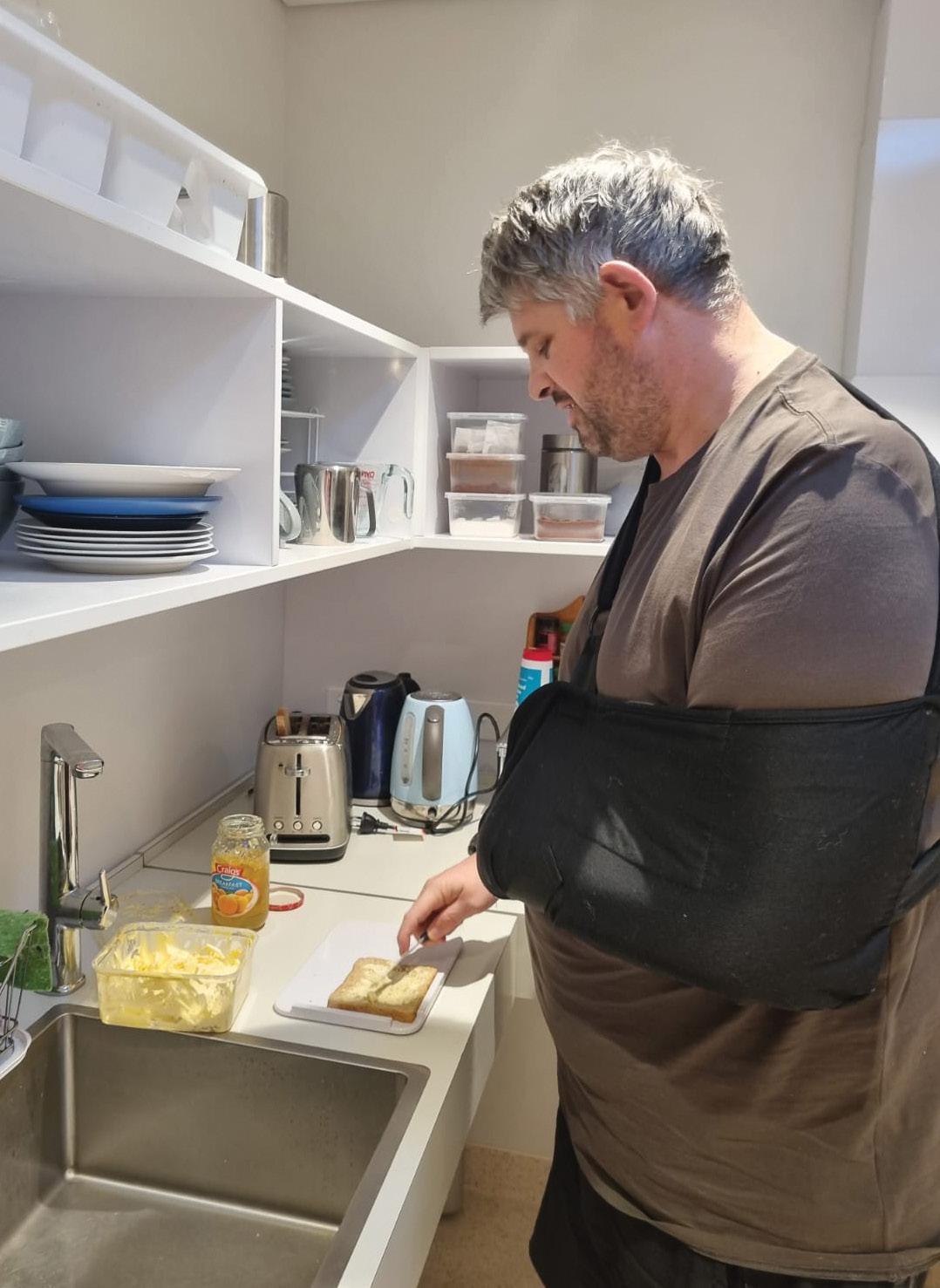
Part of rehab was learning how to accept help, something Brendan grappled with at the beginning, and also doing what he’s told, both by his team and his family.
Spending close to three weeks at ABI, he learned skills for life to equip him back home and adjust to his new normal. Fatigue continues to be a lingering symptom after Brendan’s injury and he’s been using strategies he learned at ABI to deal with this back home.
Brendan is now back at work four days each week and his Dad (who he works with) frequently brought him to and from work but now Brendan can drive again giving him a sense of independence.
Recovery from major nerve surgery on his arm last December has taken some effort.
“I’ve got a long way to go but I’m getting there” smiles Brendan.
“The skills learnt at ABI about managing fatigue have really helped with this. Nerves heal slowly so hopefully by Christmas I’ll be out of this sling, until then I keep being patient. The key thing I’m constantly reminded of is that it’s important to be forgiving on yourself and allow yourself time to heal. ABI taught me so many good things and that I can’t rush the healing process which has been such an important lesson”.
His determination and optimistim is palpable and his strong support network is behind him 100% of the way. And we’re with you 100% too, Brendan.
Whāia te mātauranga hei oranga mō koutou.
Seek after learning for the sake of your wellbeing.
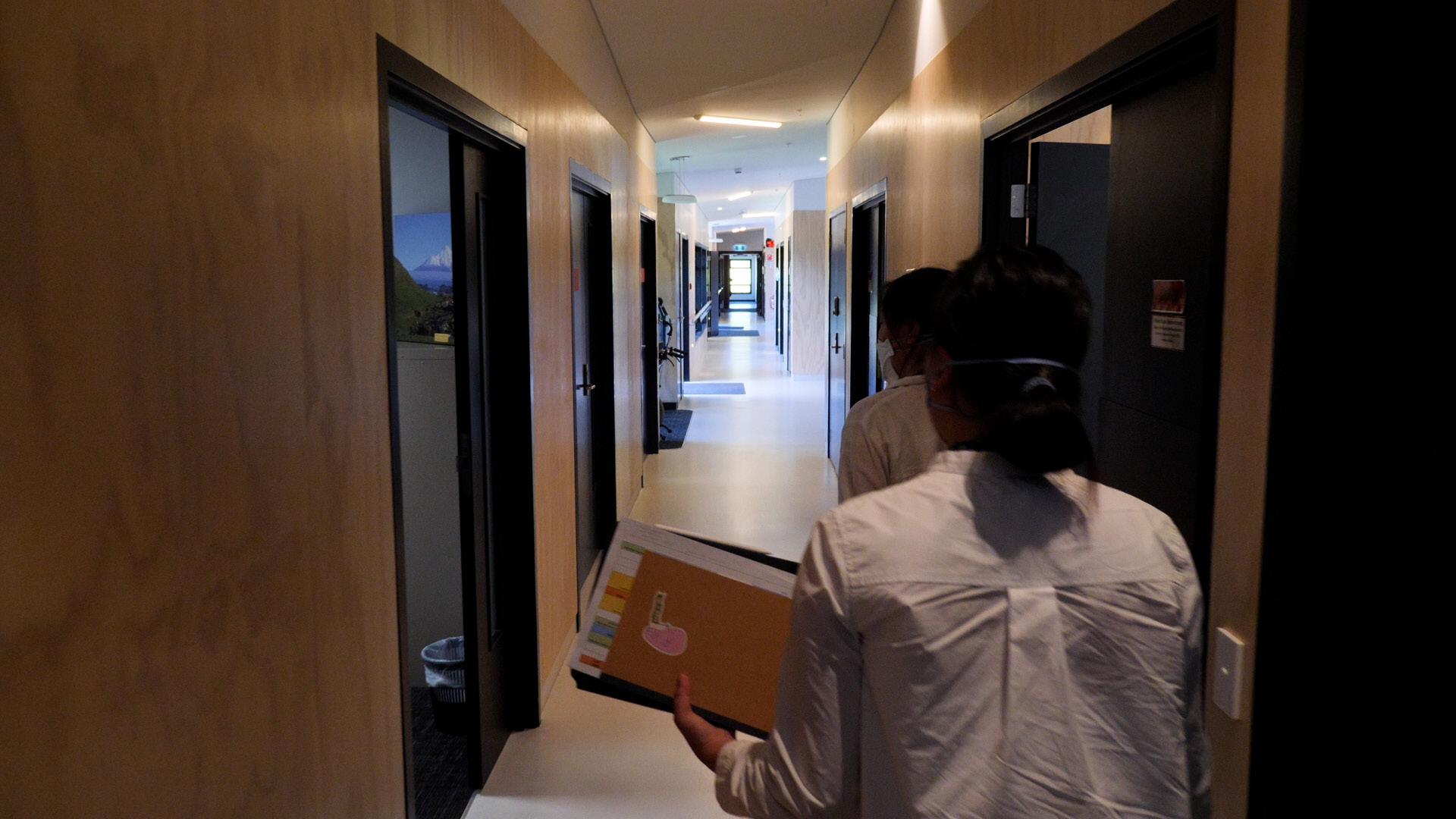
Clinical Governance Structure continues to be instrumental in supporting best practice across the services with a recent focus on kiritaki falls. This work demonstrated neurological observations are consistently and appropriately taken post kiritaki falls.

Internal benchmarking launched last year across ABI intensive services with a focus on falls and infection rates has now extended to monitoring call bell response time, ethnicity and incidents relating to falls, behaviour and medication. Quality indicator boards are updated monthly in service staff areas.
A new incident management system called RiskMan has been implemented and this software will support enhanced reporting and monitoring of kiritaki risk across all services. Enhanced monitoring will support corrective action development and process improvement.
The introduction of Te Puna has seen the development of an automated document control system that supports timely review and update of operating documents.
ABI is preparing for a pending CARF survey with the application submitted in June 2024. A CARF champion group meets regularly to support have information required to support the survey. Although dates have yet to be confirmed, it is anticipated the survey will occur December 2024.
ABI underwent a certification audit in August 2023 against Ngā Paerewa Health and Disability Services standard. This was ABI’s first audit against the recently introduced standard. The certification audit resulted in one low risk corrective action. A three year period of certification was awarded.
The internal audit programme has moved to Survey Monkey. This initiative will support a paperless audit programme and is being launched in July 2024.
The Health and Safety Committee continue to meet regularly and now beginning to identify improvements that will raise the profile of health and safety across the services. A demonstration of this was the establishment of Health and Safety boards that profile the health and safety reps on each site, annual goals and updates. Semi-annual inspections have been undertaken, most recently in June 2024.
I orea te tuatara ka patu ki waho. A problem is solved by continuing to find solutions.
ABI has participated in the following research in the past year:
ACTion TBI, AUT, Auckland, Victoria and Otago Universities - Researching if a new treatment can help improve recovery following a mild brain injury
Peer mentoring, AUT University - Evaluating a sustainable model of peer mentoring
Validity testing of brain injury prognostic calculators, Waikato Hospital - Testing two calculators which predict long term outcomes in kiritaki with TBI.
Evaluating the feasibility and clinical utility of the Brain Injury Screening Tool (BIST), AUT University
- Evaluation of a concussion assessment.
Exploring nurse’s use of Health Coaching principles and practices, ABI Rehabilitation, AUT University, Royal Rehab, Sydney - To understand what Health Coaching practices nurses are using in two TBI rehabilitation facilities.
Increasing mealtime conversation skills for people with Traumatic Brain Injury, University of Auckland - Reviewing social interaction and communication after introducing personalised written prompts.

Ehara! Ko koe
te ringa e huti punga! Yes yours is the arm best suited to pull up the anchor!
ABI’s residential kiritaki rehabilitating from either a traumatic or acquired brain injury range in age from 18 to 65 and ABI currently has 36 residents across four different Auckland locations:
• Swanson House 1 – These are medically fragile complex care kiritaki with profound disability and/or high neuro-nursing needs.
• Swanson House 2 – Medically fragile and female only house.
• Farm House – Young male kiritaki undergoing neurorehabilitation
• Glenburn – Male service with nine kiritaki with ongoing cognitive/ behavioural impairment as result of brain injury
• Tirimoana – Long term residential care placement for older male kiritaki
In the last year, ABI’s has had eight discharges from a residential service including:
• Three kiritaki discharged home
• Two kiritaki transferred to a private hospital
• One kiritaki to a lower acuity service (Evolve West Auckland)
• Two kiritaki deceased Highlights of the three kiritaki discharged home:
• Kiritaki with profound disability was able to discharge home once housing modifications were completed, and ABI trained community support workers
• Young male returned home to his own home after stroke rehabilitation
• Another kiritaki was returned home after a significant brain injury.
Residential discharges are less frequent than in intensive or community services, so ABI takes great delight in seeing residential kiritaki return to independence in their homes and community.
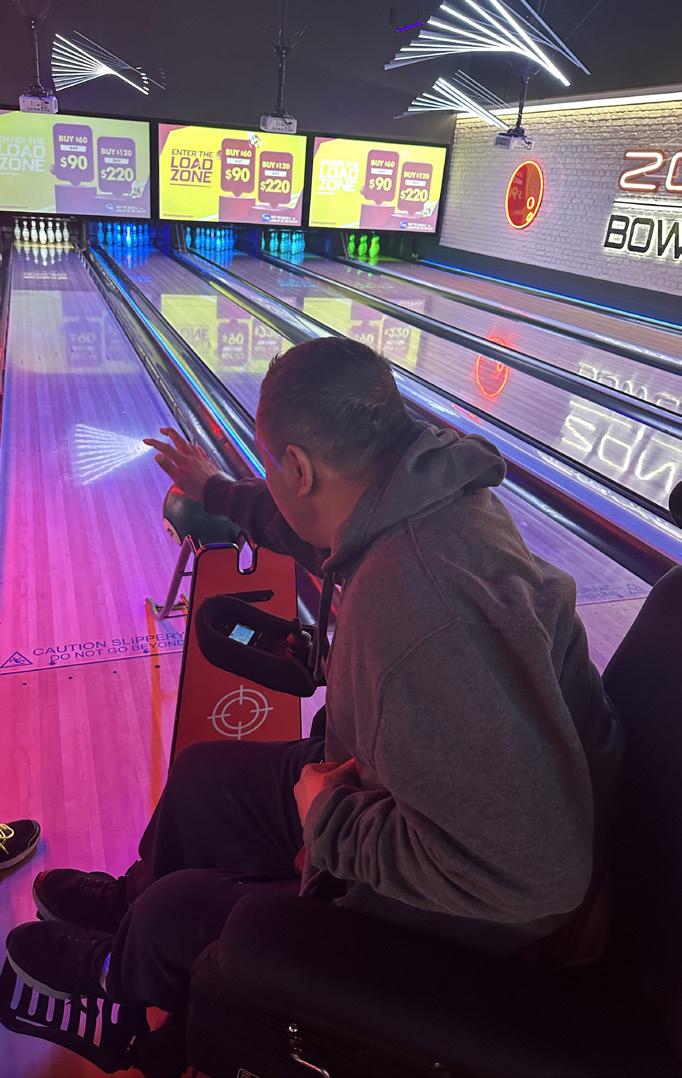
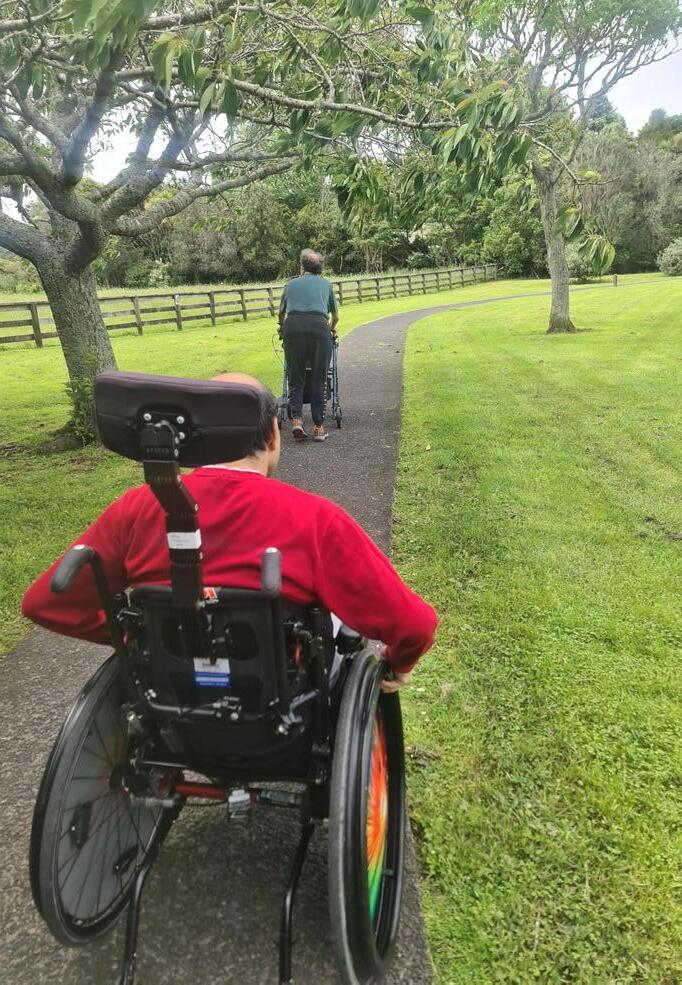
By improving clinical support and rehabilitation driven kiritaki centred outcomes, ABI Residential Clinical Team (OTs, PT, SLT and senior nurses) are now supporting Evolve with clinical management of their kiritaki. This sharing of knowledge and resources has already shown great outcomes and allows kiritaki to transition across to each of the services without interruptions once kiritaki needs are stable, and long term residential placement is more appropriate. In addition, ABI is clinically supporting other Evolve Rehabilitation facilities by providing nursing and allied support to each of Evolve’s regional services.
Kia mau ki te tūmanako, Te whakapono me te aroha
Hold fast to hope, faith and love
Over 3000 adults and 720 tamariki received services from ABI’s community team in the past year, ranging in age from three months to 100 years of age!
ABI Community worked both nationally on assessment contracts, and regionally from branch hubs in Northland (Whāngarei), Auckland (sites at Northwest, Epsom and Botany) and Wellington (Tawa and Wairarapa).
The Wellington community team moved premises during the year, joining the intensive team on site at Porirua. This co-location enhances transitions for those kiritaki leaving intensive and continuing their rehabilitation with ABI once home.
ABI continues to be recognised as a specialist provider of paediatric rehabilitation, serving not only ACC funded kiritaki, but children in schools and through Oranga Tamariki. The Community team provides specialist assessment and intervention services to children and young people in a range of settings including the home and satellite classrooms of mainstream schools.
ABI provides individually tailored psychology and occupational therapy programme for kiritaki and their whanau to optimise function in daily activities for school, home and the community.
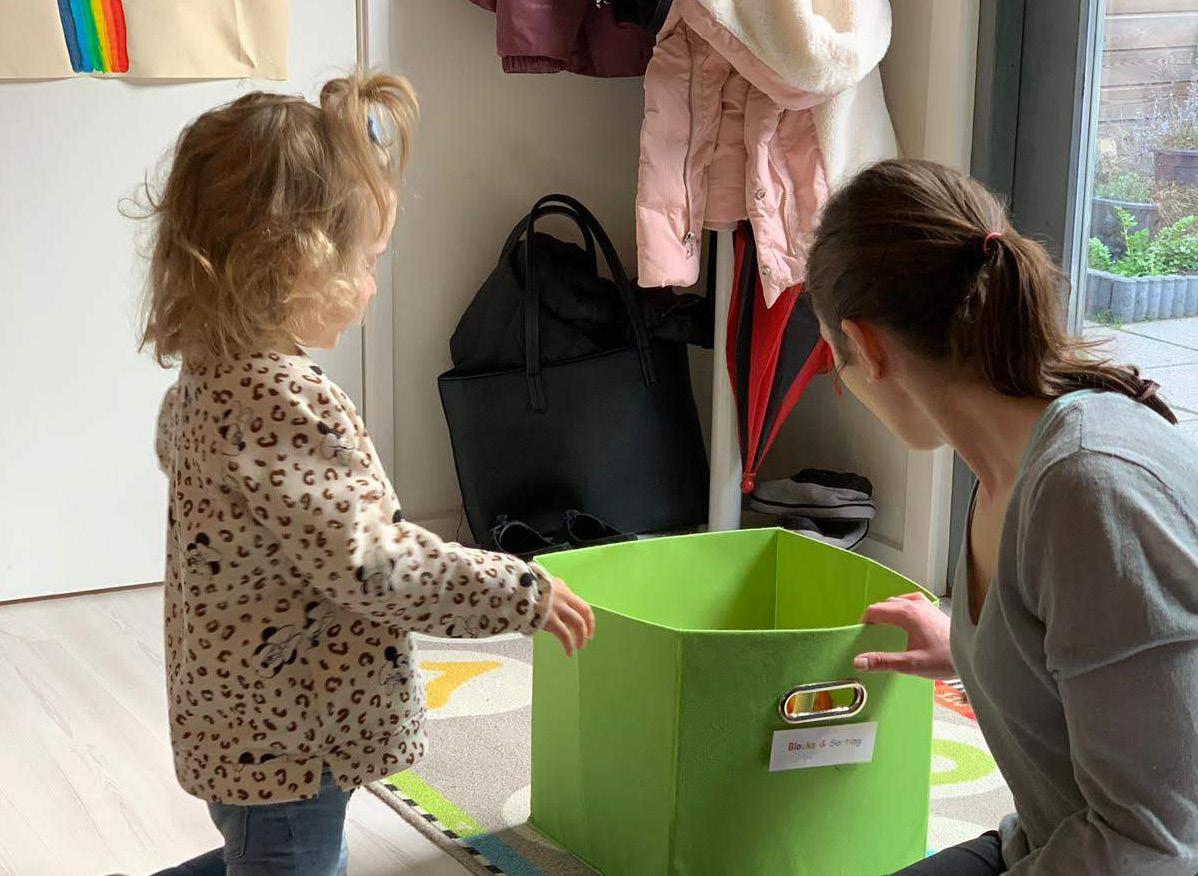
Te reo Māori English
Kiritaki Clients/patients
Kaimahi Staff/workforce
Mahi Work/job
Korero Story/conversation
Pātai Questions
Whakamarama Explained
PROUDLY PART OF